| Parque Nacional los Alerces |
As most of our readers probably know, we’re now back home in New Zealand, safe with family and passing our days in self isolation and lockdown. I’ll write more about this later, but for now we’re happy we made the decision to come home amid the tragedy and uncertainty that is playing out around the globe. We hope all our readers are safe, wherever this finds you.
For now, I’ll backpedal to the first week of March, which found us on the eastern (Argentinian) side of northern Patagonia. As you might recall from our last blog post, we kicked off the Patagonian chapter of our journey riding from Puerto Varas to Lago Puelo via a classic hike-a-bike route that crossed the border between Chile and Argentina. It was hard work, but it was also a deeply memorable plunge into the distinctive environment that typifies Patagonia: from the sparkling clear rivers to turquoise lakes, sprawling nothofagus forest and craggy glacier-clad ranges.
Eager to make hay while the sun shone, we didn’t stop and rest in Lago Puelo, but instead continued in the direction of Parque Nacional Los Alerces figuring that we’d spend a couple of cruisier days there while we looked around. At first we made a rare appearance on Argentina’s paved north-south artery, the Ruta 40, which follows the base of the Andes for the length of the country, and then on quieter roads and gravel until we reached the park entrance.
The western and eastern regions of Patagonia (either side of the continental divide) are quite different in nature. The west, closer to the sea and at lower elevation, experiences more rainfall. It’s more humid and the forests are richer and greener. The east by contrast is drier and the forest more open. As you ride further east the beech forest cover falls off rapidly and it’s common to see large tracts of grazing country and pine forest.
I may not have mentioned the difficulties with local currency as a traveller here, but you have to do a lot of forward planning to make sure you’re not caught without money. Although many tiendas accept credit and visa-debit cards, cash still has a big role in society here. ATMs dispense pathetic maximum withdrawals and at very high rates, while the official exchange rate is also crushing for many other currencies. We’ve heard stories of other cyclists hanging out at gas stations and paying for customers gas with their credit cards in exchange for cash.
The most economic and reliable method (for travellers) to get hard currency is via Western Union. You can buy the local currency online with a credit card and then withdraw it when you reach the next Western Union office. These are quite common at post offices, except that they often keep silly hours, so you have to be careful. We always try to have some US currency as a get out of jail free card, as most tiendas here are happy to exchange it.
We’re officially in Patagonia …
… as the view attests. This region is a rock climber’s and alpinists dream, with craggy peaks such as these pretty much omnipresent on the horizon. And we’re not even in ‘classic’ Patagonia yet.
Lago Verde, inside Los Alerces National Park, by moonlight. Right at the nucleus of the road-accessible part of the park, the Lago Verde/Rio Arrayanes area is stunning. Here, three lakes are separated by just a narrow neck of land and connecting rivers. Beech and alerce forest sprawls over the mountains and the water is both remarkably clear and beautifully coloured by minerals. We arrived quite late in the day, so took a quick look around the area. There’s a loop walk (Camino a Puerto Chucao – visible on OSM maps) that provides some nice forest immersion and great views of the lakes and mountains.
We camped just a 15 minute ride away at Camping Agreste Lago Verde which is a minimal-services campground. There are also totally free camps (further away) and a full service camp nearby. Early in the morning I rode back in the dark to catch the pre-dawn colour and then wandered around the forest alone.
From the western-most part of the loop there is an excellent view down Lago Menéndez to the heavily glaciated Cerro Torrecilla (2253m).
The resemblance of this scenery to New Zealand landscapes is extraordinary despite their separation, so I felt as if I was just in a slightly different version of home. Rivers and montane forests are among my absolute favourite scenes to photograph, so it felt really good to flex a nearly forgotten photographic muscle and dust off my polarising filter.
Later that morning – feeling quite unrushed and just appreciating the park – we got back on the road and pedalled a short 16km along Lago Futalaufquen to Punta Mattos. There’s a free campsite there (flat sites but no toilets). On the way we stopped at Playa El Frances (which is also a very nice free spot).
We’ve been sighting plenty of birds, this one’s a southern crested caracara, from the family Falconidae.
Predictably, the blue skies did not last forever; it is Patagonia after all. But while it was probably pouring with rain in the west, we had gusty winds and light showers as the lake came alive with whitecaps. Moody skies and drama are some of the things this region is famous for.
Dawn was calmer, the rain gone.
No need to carry 13 litres of water at a time anymore.
There’s rarely a dull moment with Patagonian skies.
After a night at Punta Mattos, we carried on east towards Trevelin, leaving behind the glacial lakes and beech-cloaked mountains for the arid and more leanly forested edge of the Patagonian Steppe. Trevelin was settled by the Welsh during the mid 1860s, which has lent the region a curious mixture of place names along with indigenous and Spanish.
The town has not forgotten its roots, and nor – as evidenced by signs and street art – have the Argentine people forgotten Las Islas Malvinas. Otherwise known as the Falkland Islands. Some of you (we do) will be old enough to remember the 1982 Falklands War, which was a tragic attempt by the military junta of Argentina to regain the British territory of the Falklands. The islands have an extremely chequered history, having been at various times under control, separately, of France, Britain, Spain and Argentina; with Britain most recently reasserting (and retaining) its rule in 1833. Since that time they have been subject to constant controversy.
In 1982 Argentina invaded the islands, to which the Thatcher government responded by sending a task force – by ship – 13,000 kilometres into a south Atlantic autumn. Britain intended to retake the islands, despite the unlikely odds of taking on an enemy whose home base was only 650 kilometres away. Deaths on both sides amounted to nearly 900, with Britain emerging victorious.
Although the defeat ushered a return to democracy in Argentina the following year, their defeat in the Falklands War remains a thorn in the nation’s pride. From a few Argentinians we’ve spoken to, they unequivocally believe the islands should be theirs, and that sentiment is certainly on display about the country.
The mural below reads ‘They are ours, we will return’.
We spent three nights in Trevelin, and they were made a memorable experience by our personable and interesting Warm Showers host Juan. Juan lives a few kilometres out of town on a rural property on the edge the forest. He’s a school teacher, baker, beer brewer and long distance swimmer and his attitude to life and philosophies were compatible with ours. We were made to feel part of the family quite quickly (he has two daughters, but his wife was away). Two dogs, nine cats (yes you read that right!), and several chickens roam the property, where Juan also grows almond trees. Juan is part of a local beer collective who operate their own bar, and different members of the collective each brew their own signature beer. There’s a strong community spirit in Trevelin and it was nice to go to the bar with Juan and yet feel like you were at a party at someone’s house.
On Sunday afternoon Juan’s friend Ariel and his family came over for lunch and prepared a classic local dish of pork steaks. The pork was cooked in a big steel disk (a recycled plough blade) over an open fire.
First of all, brown the steaks evenly and then remove from the dish.
Next go in chopped peppers, carrot and onion. Stir around for a few of minutes.
Then throw the pork back in and add lots of beer.
Stir well and add mustard seeds and dry chimichurri.
Totally delicious and traditionally eaten with bread, with ample vino tinto and cerveza. Provecho!
Do you enjoy our blog content? Find it useful?
Creating content for this site – as much as we love it – adds to travel costs. Every small donation helps, and your contributions motivate us to work on more bicycle travel-related content.
Thanks to Otso Cycles, Big Agnes, Revelate Designs, Kathmandu, Hope Technology, Biomaxa and Pureflow.

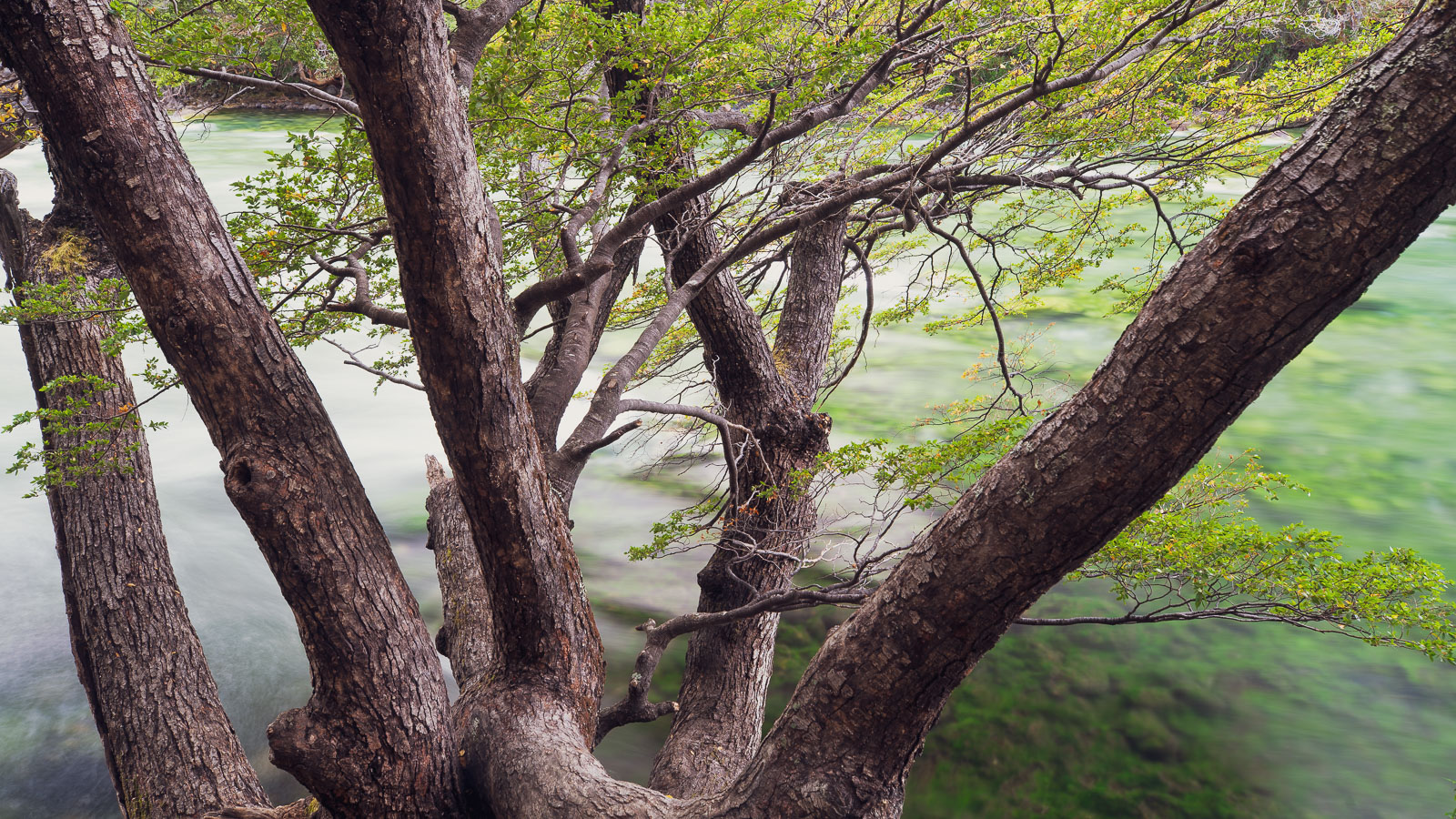
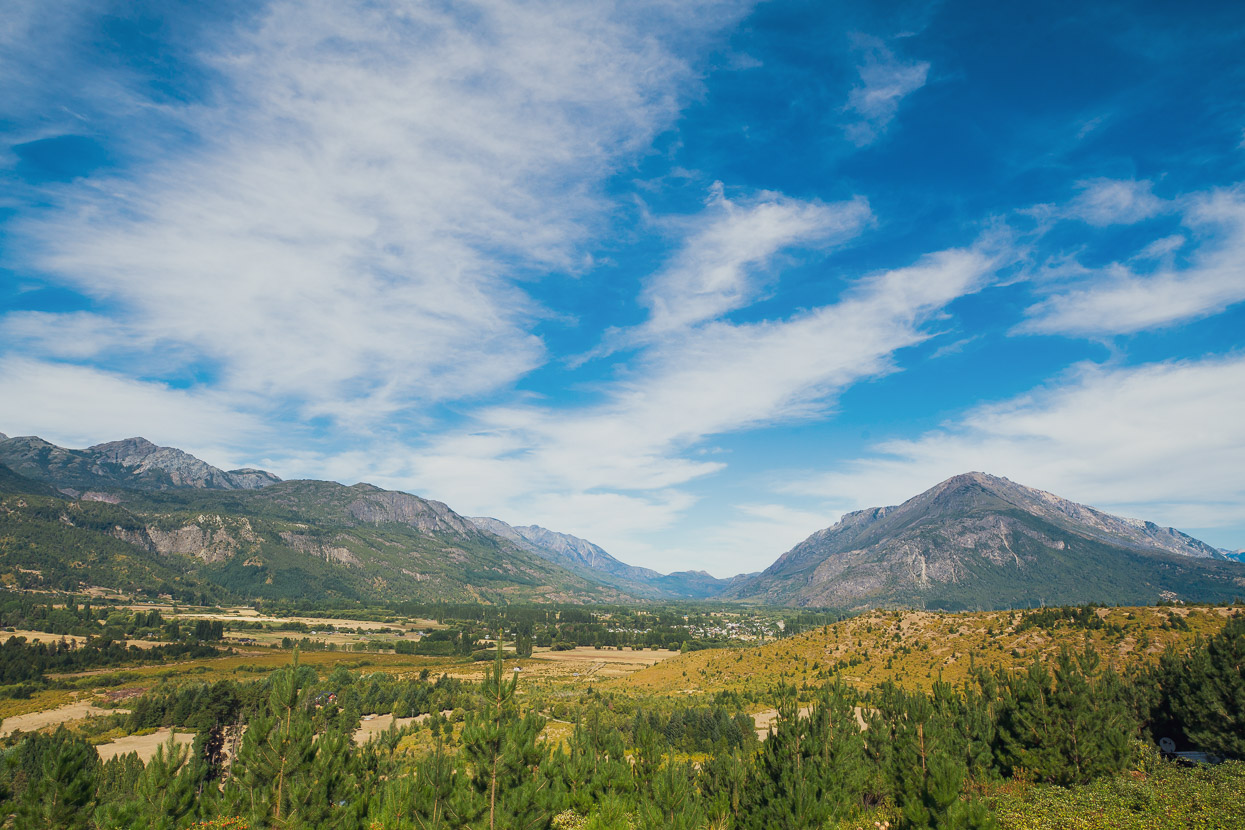
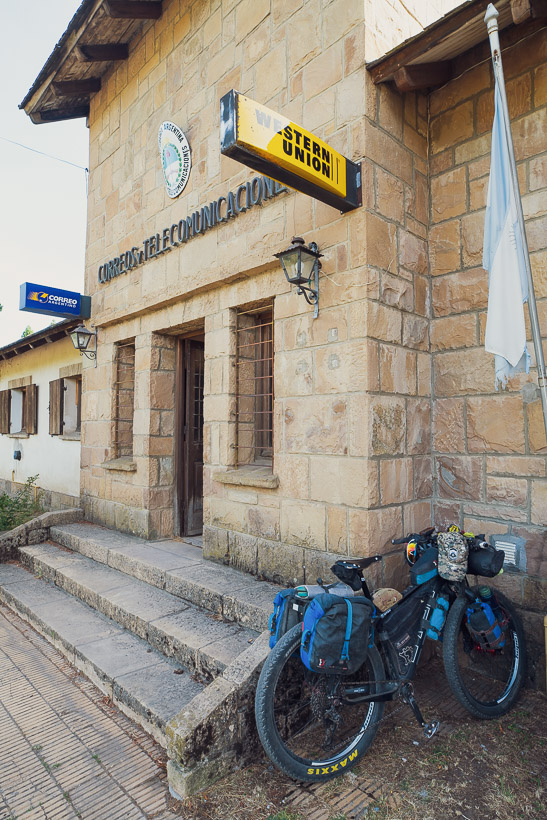
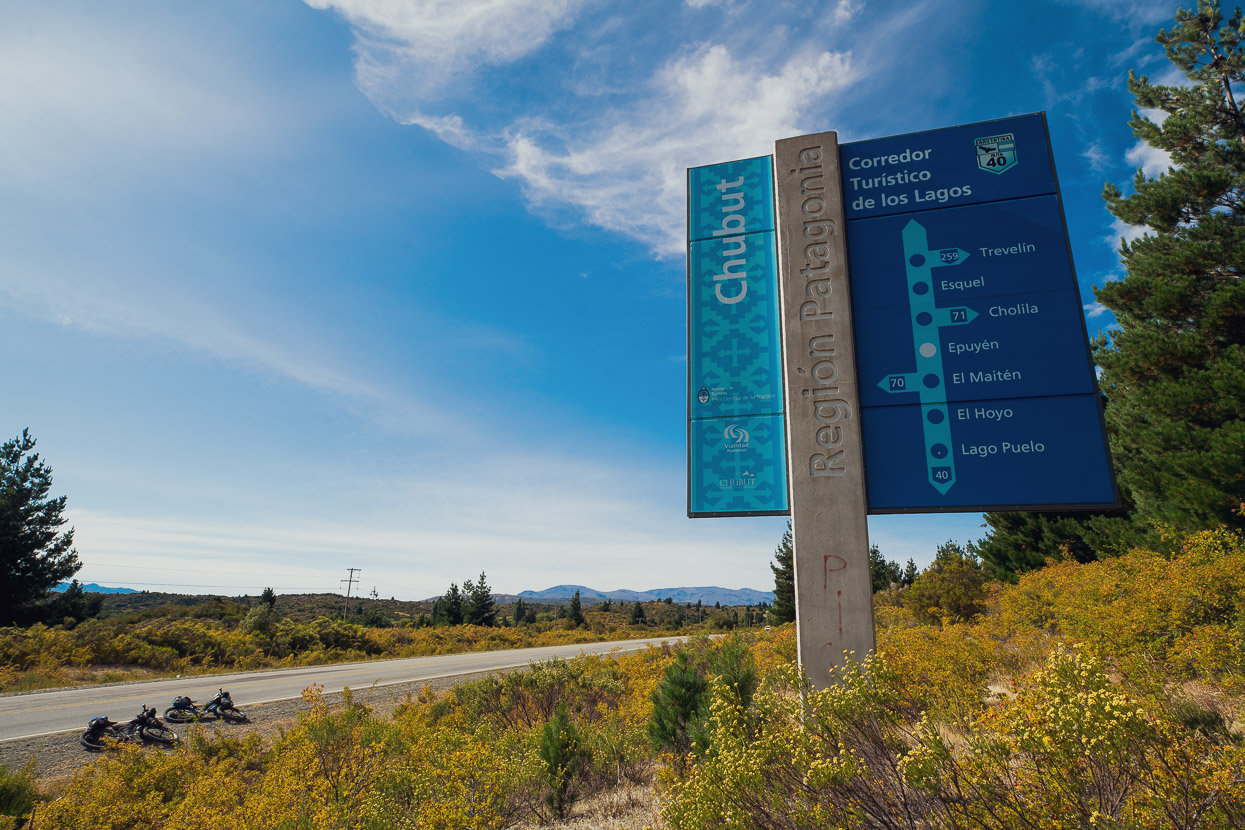
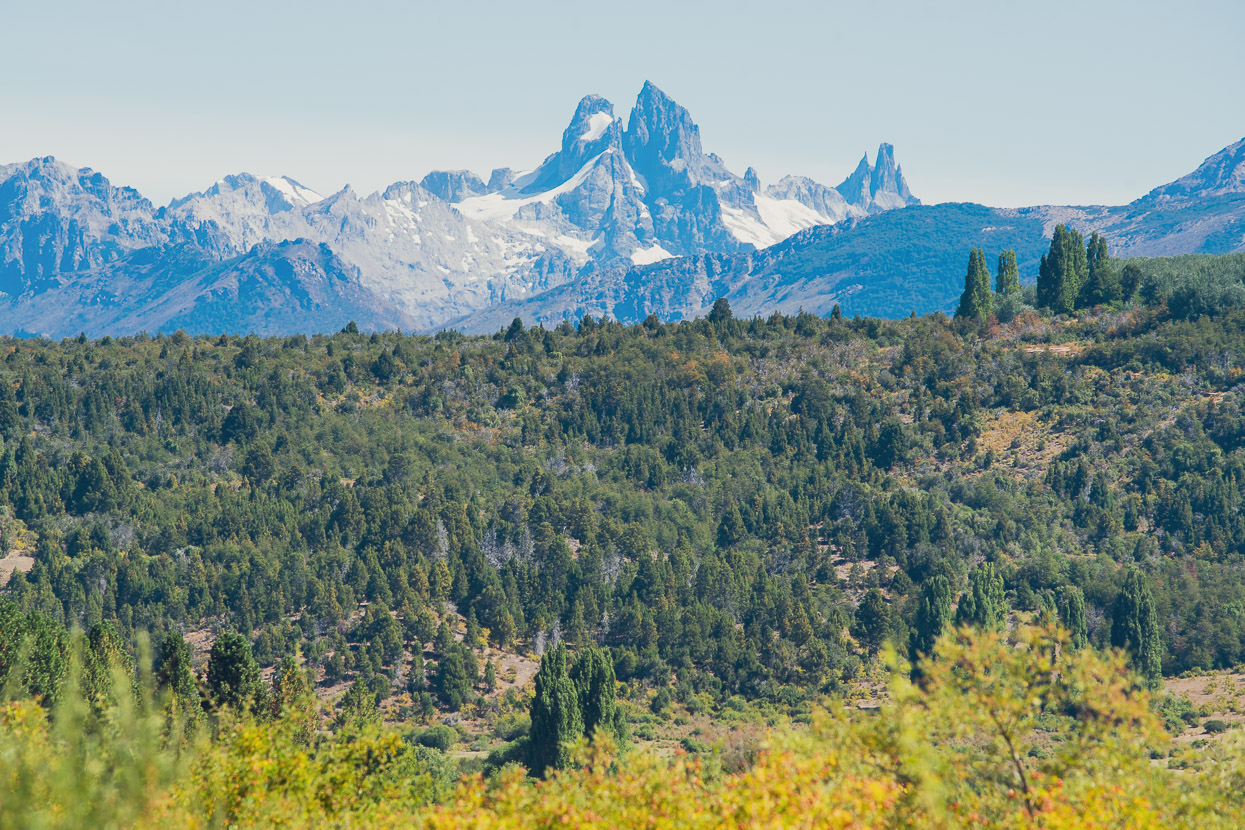
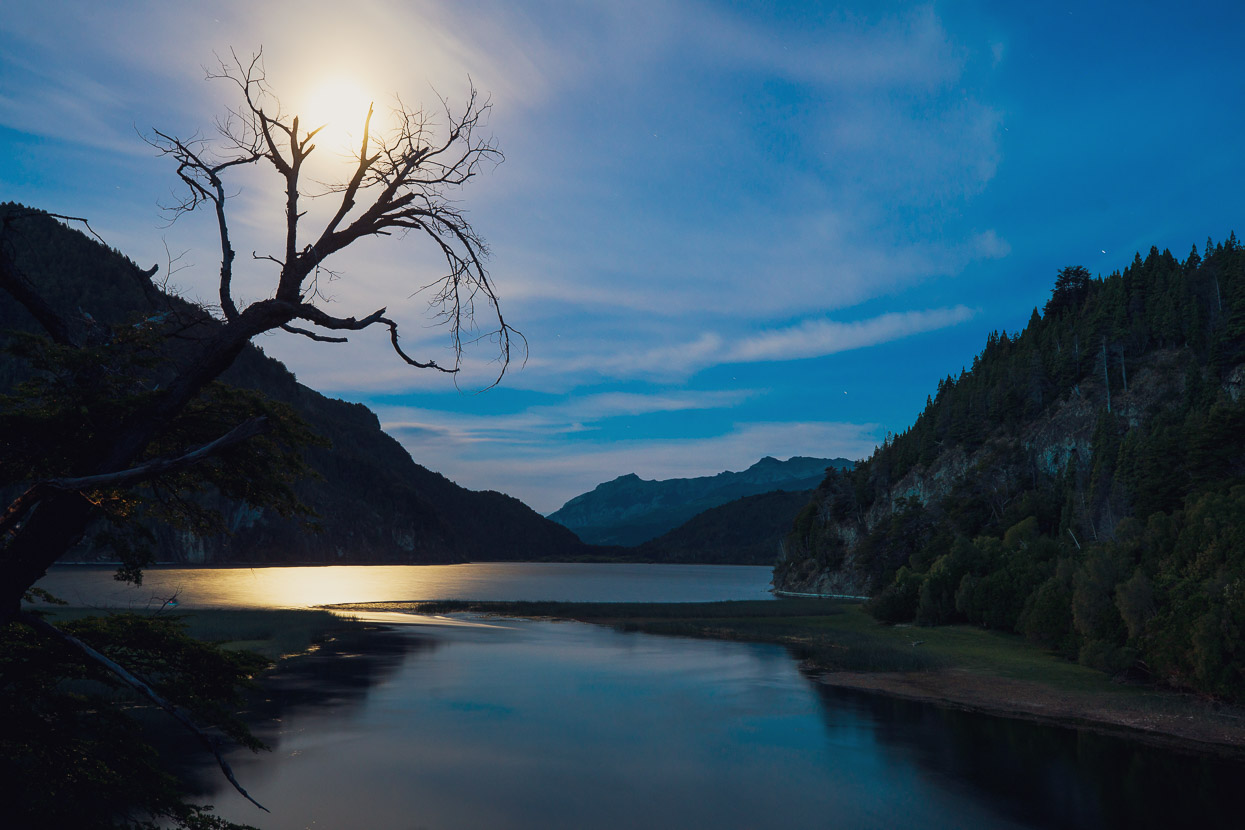
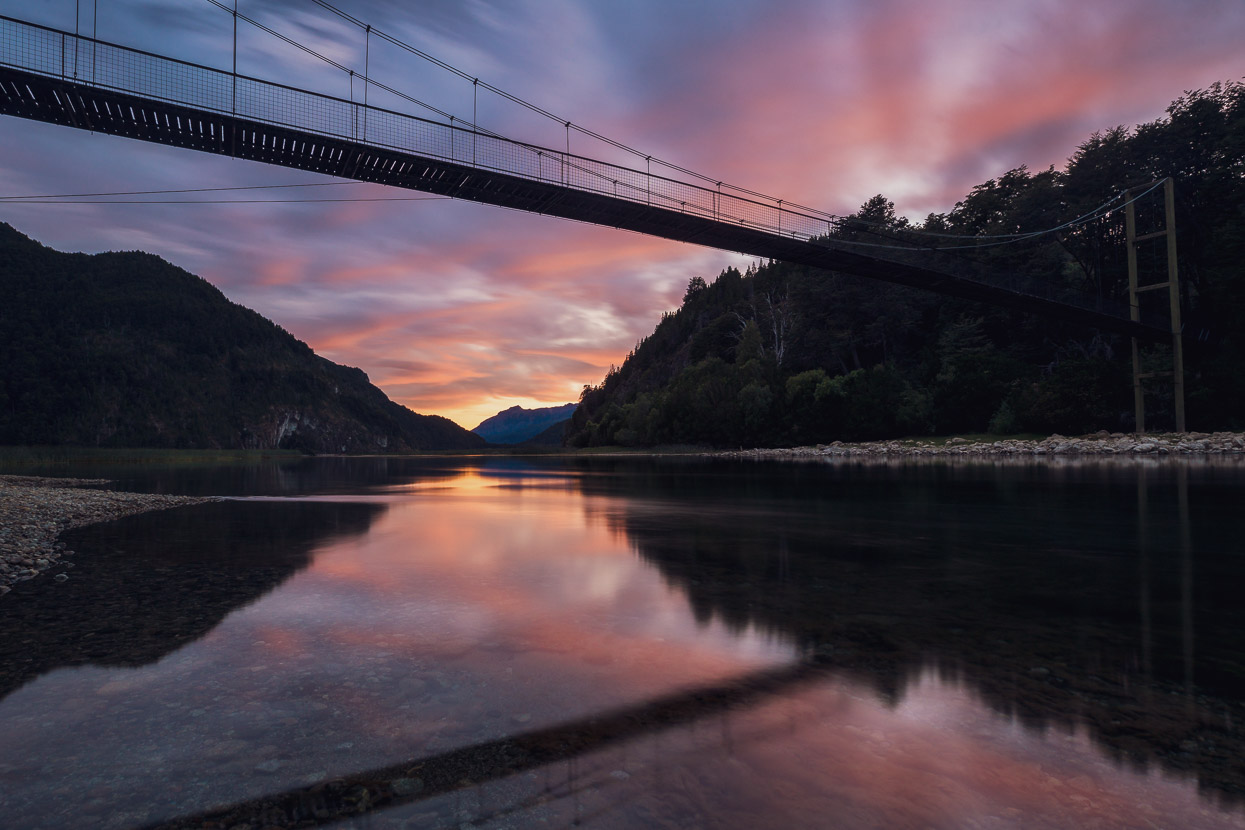
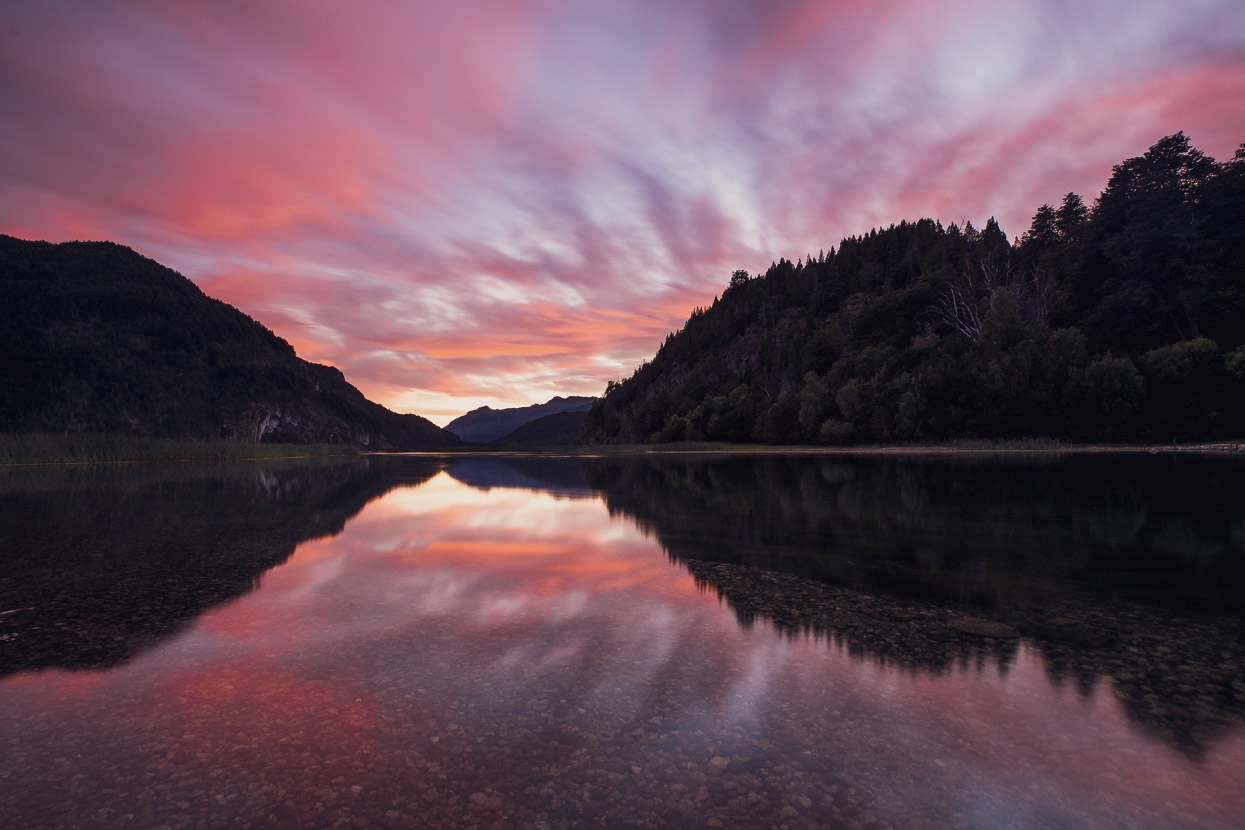
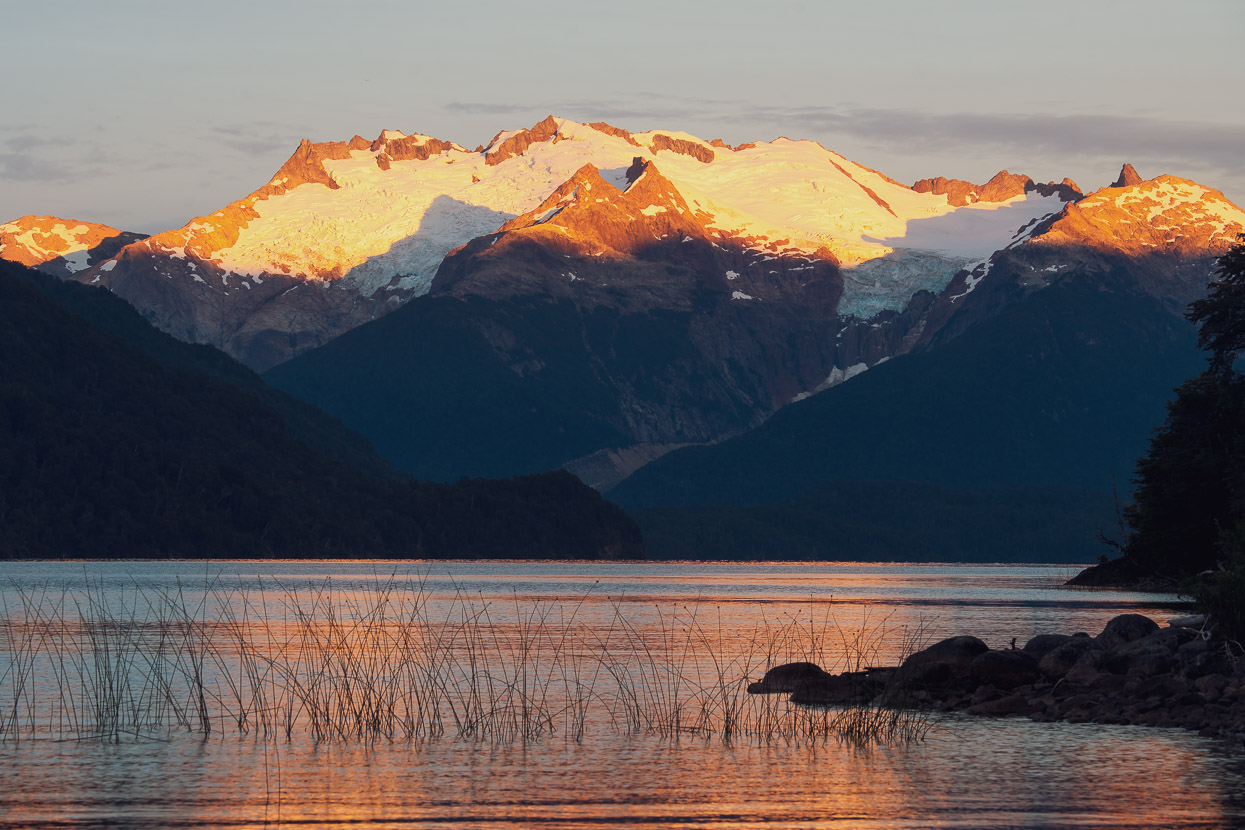
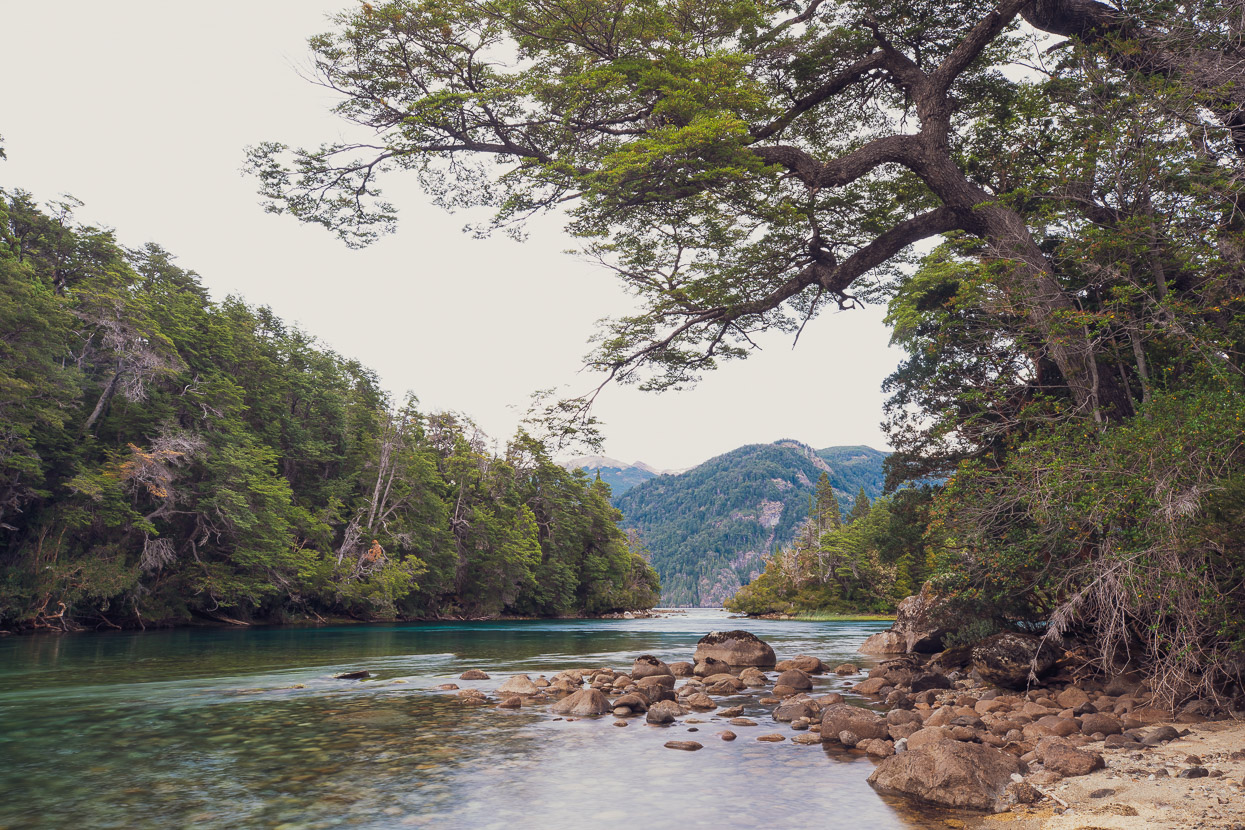
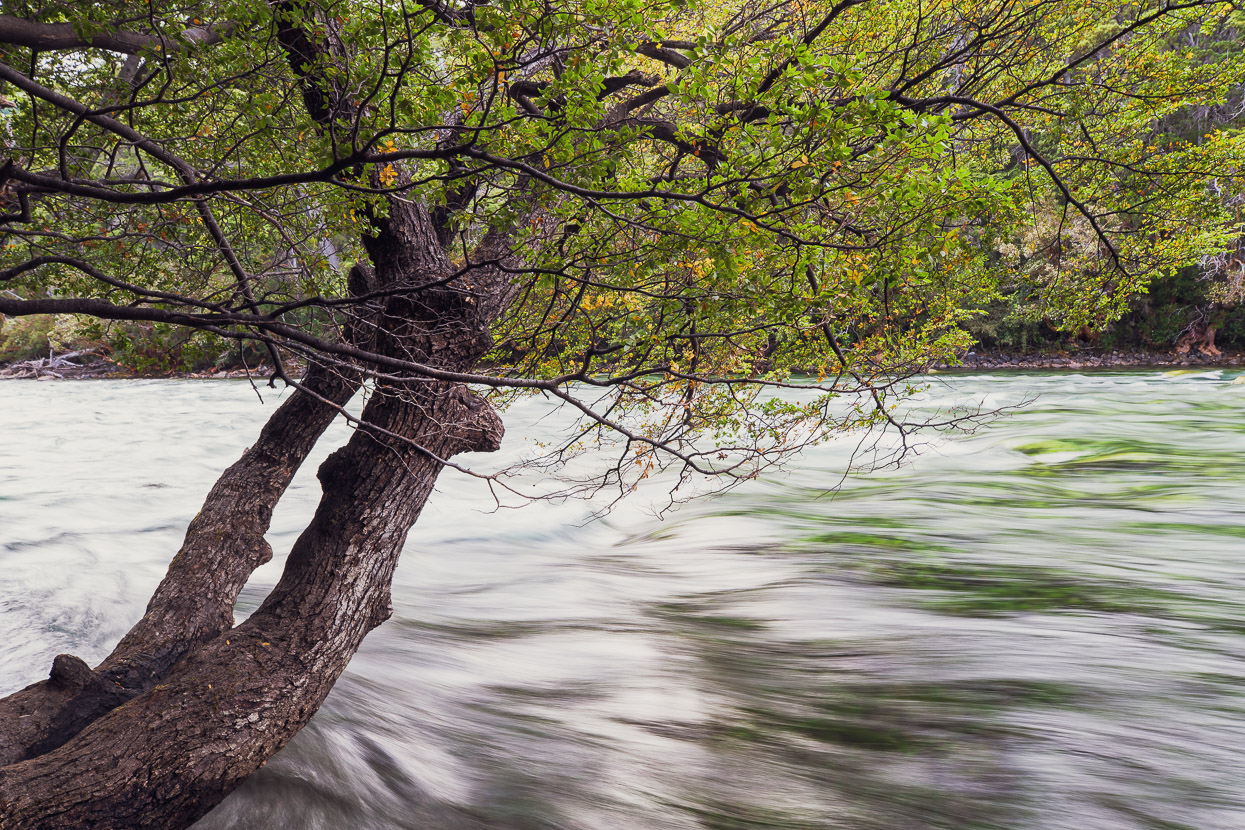
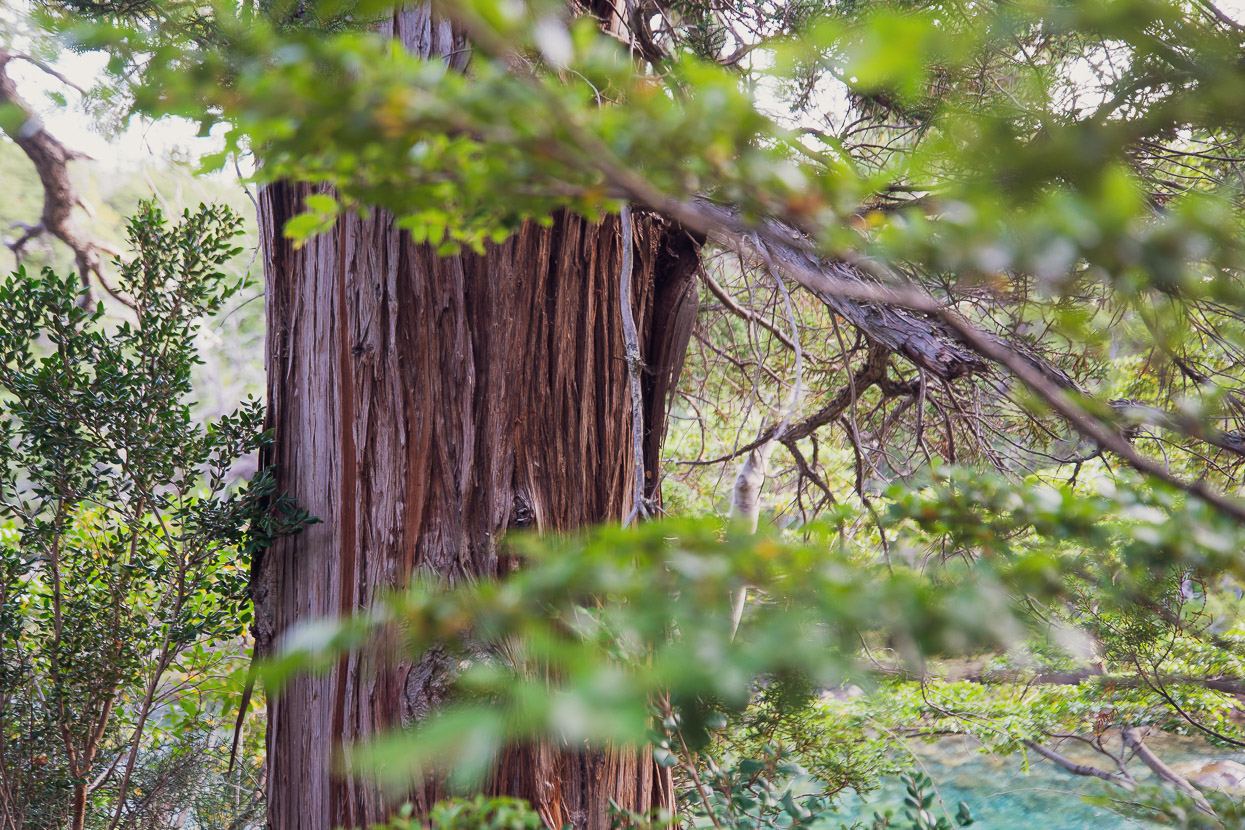
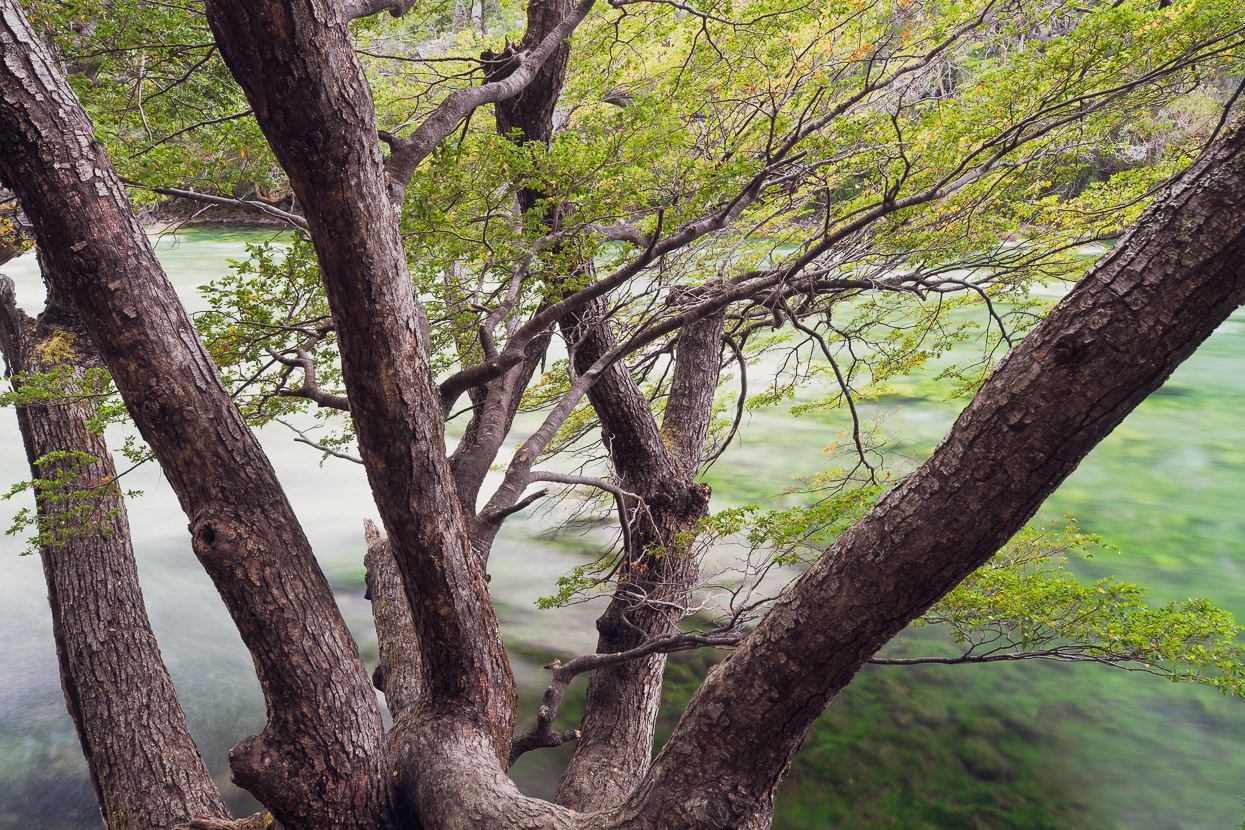
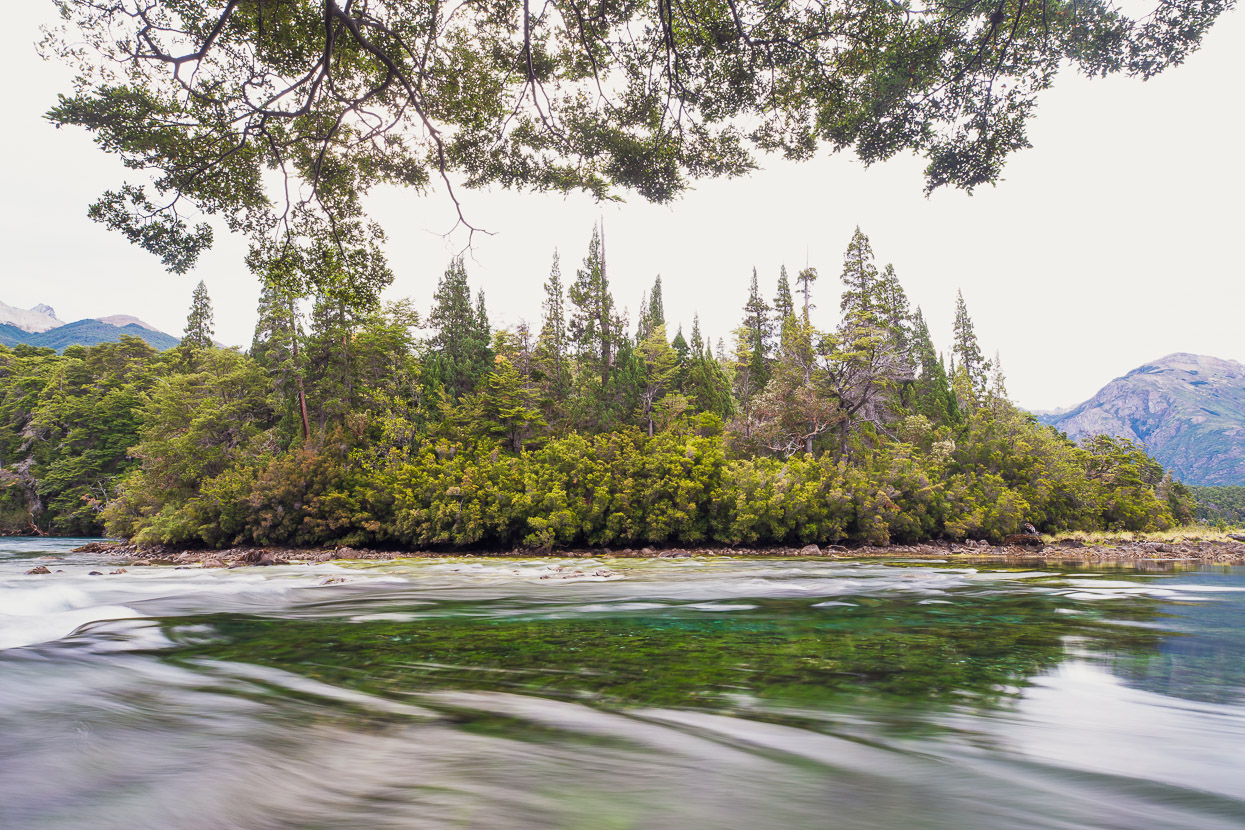
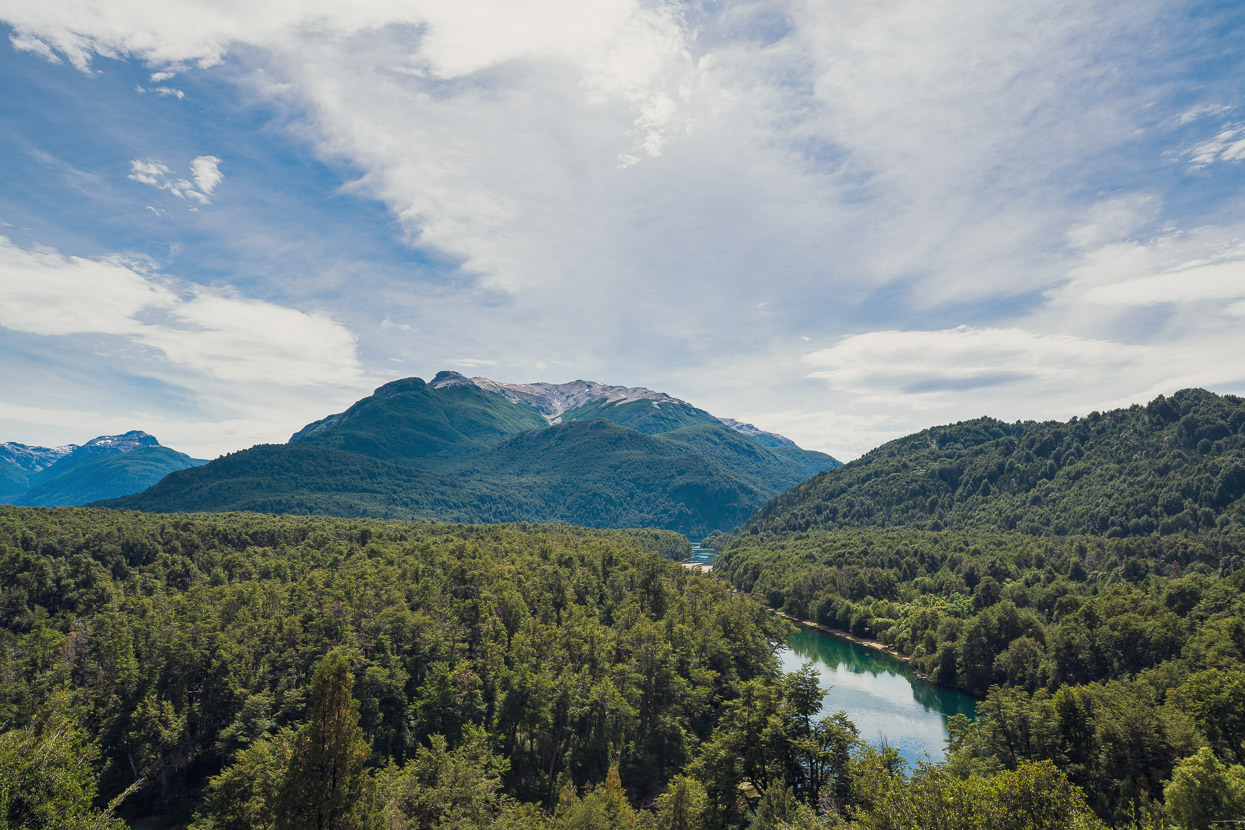
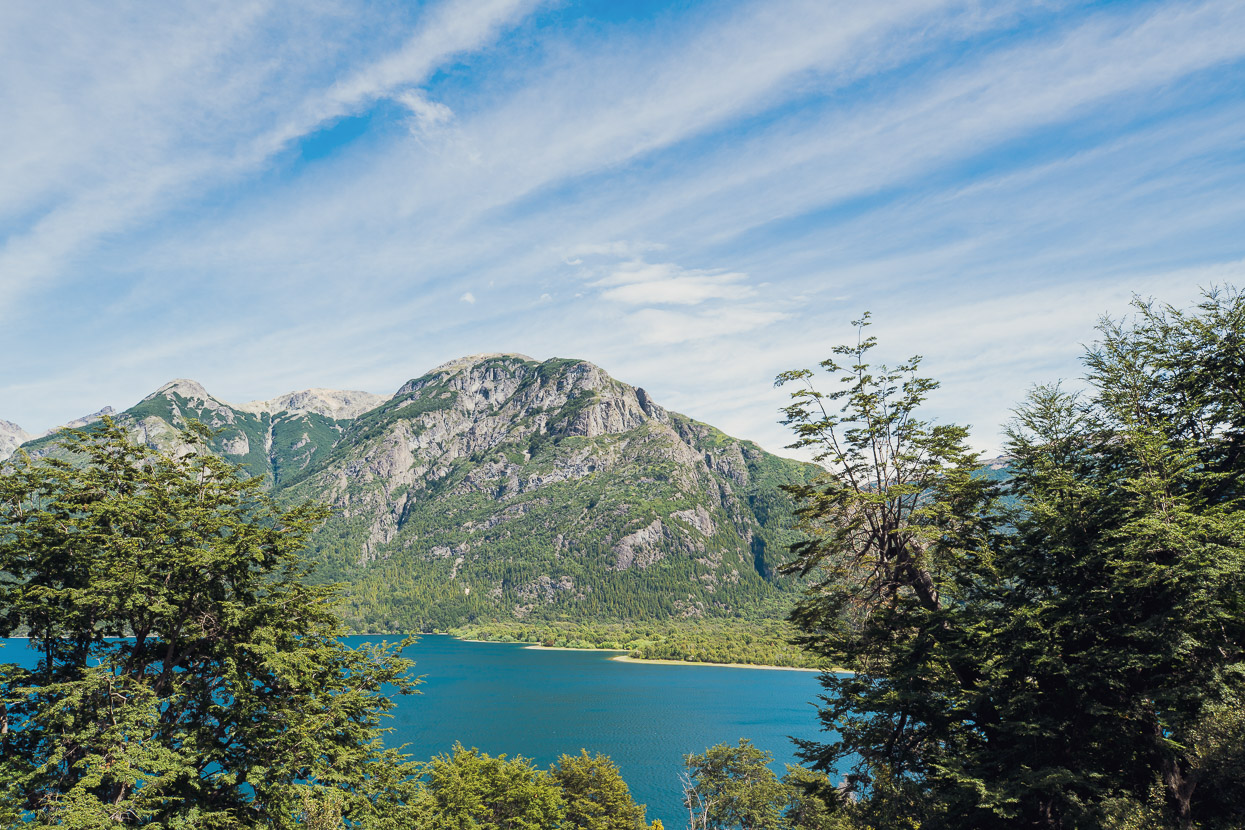
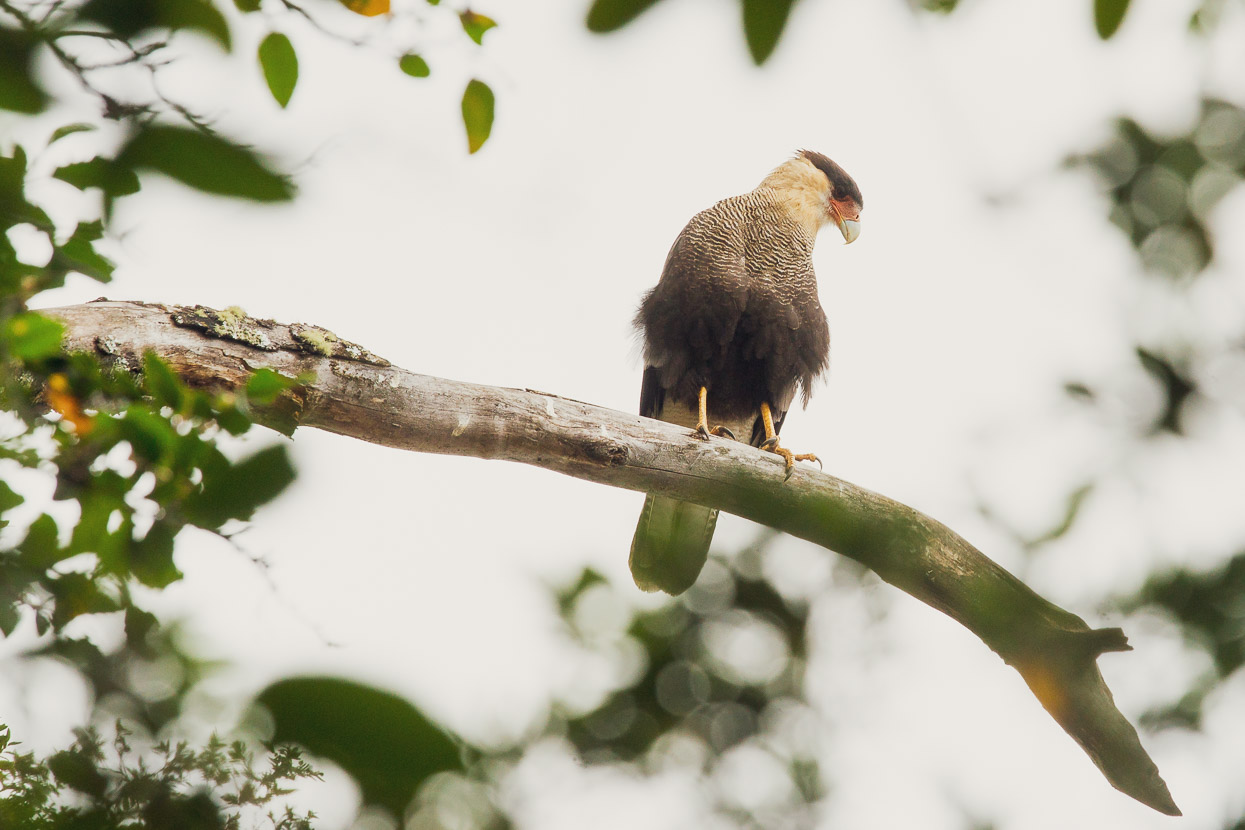
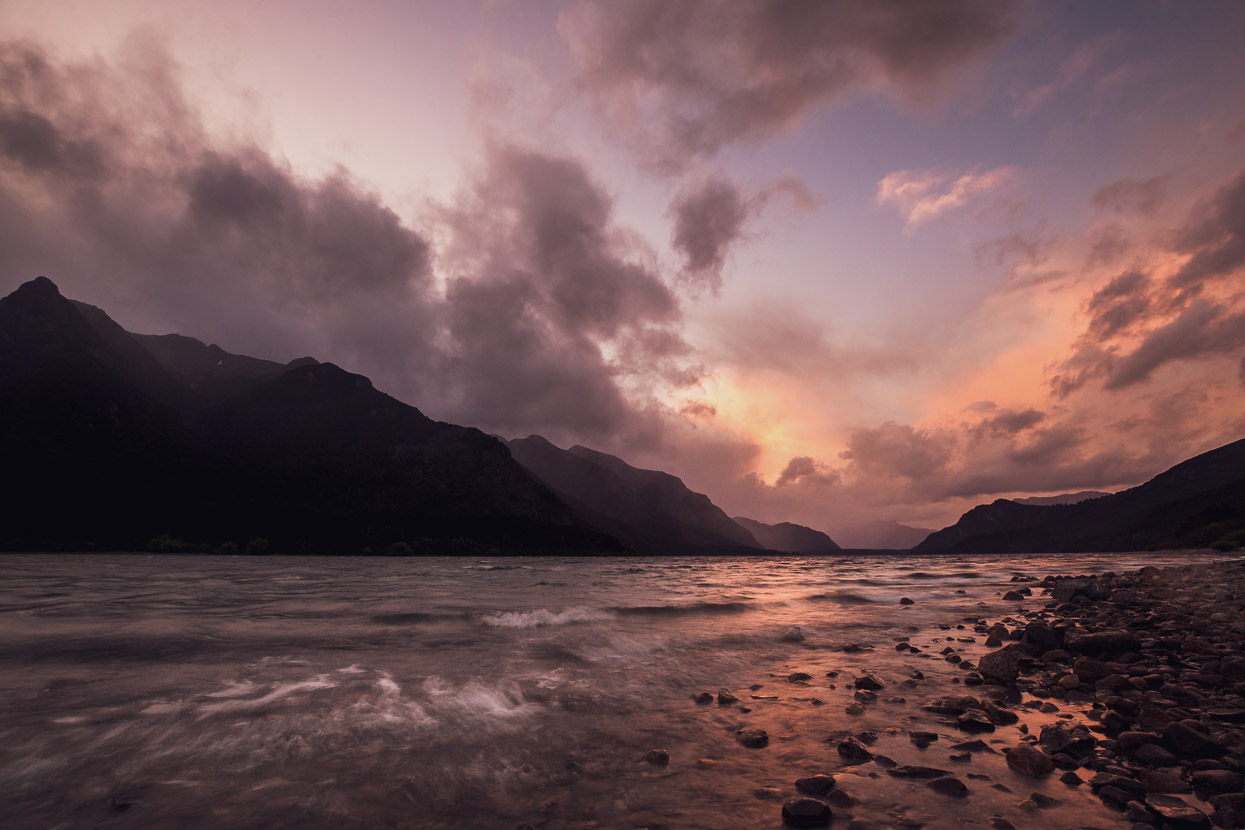
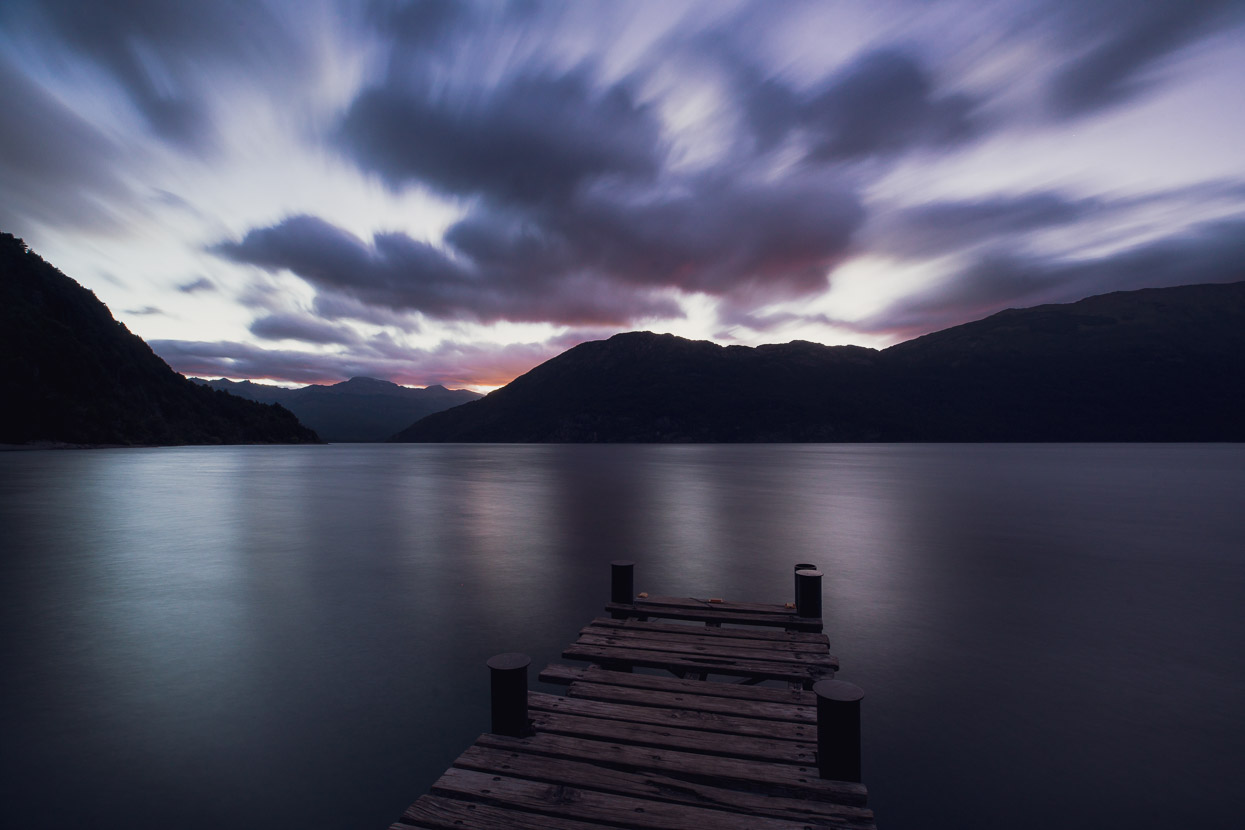
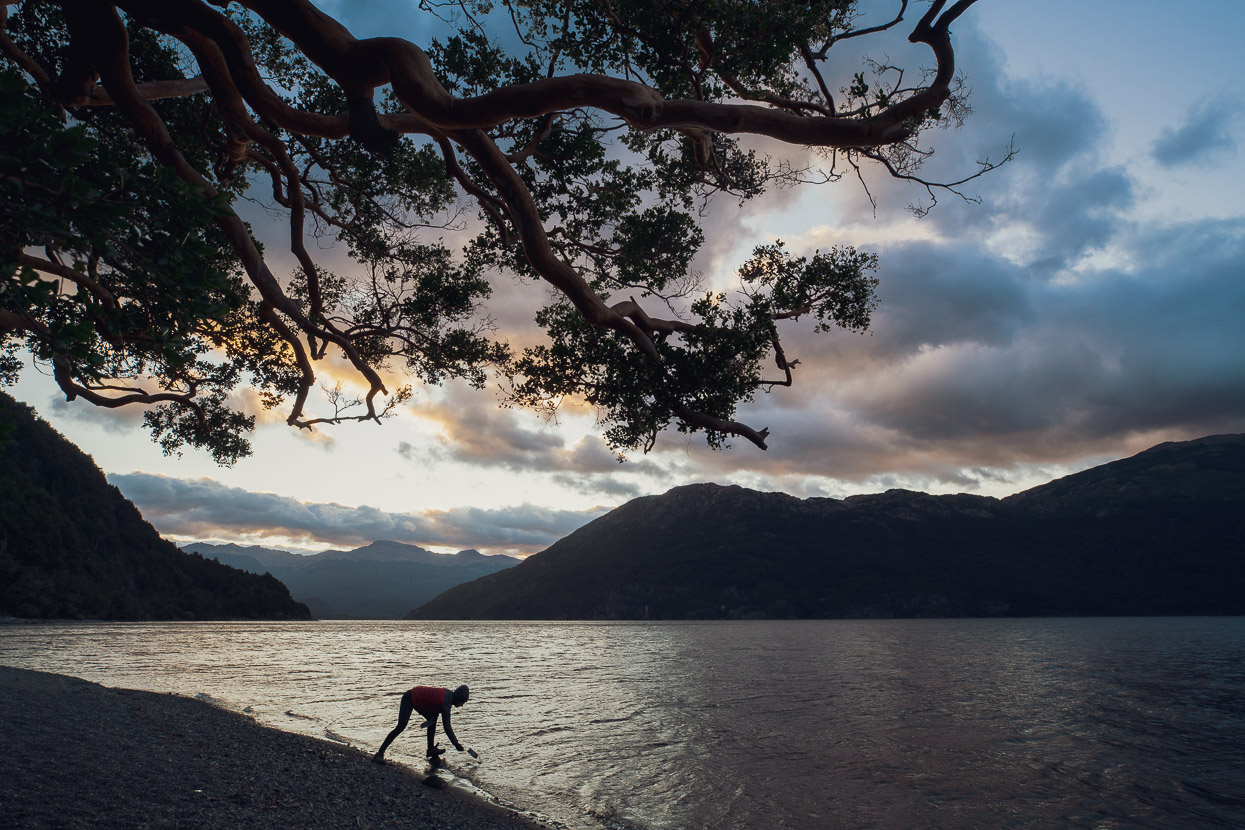
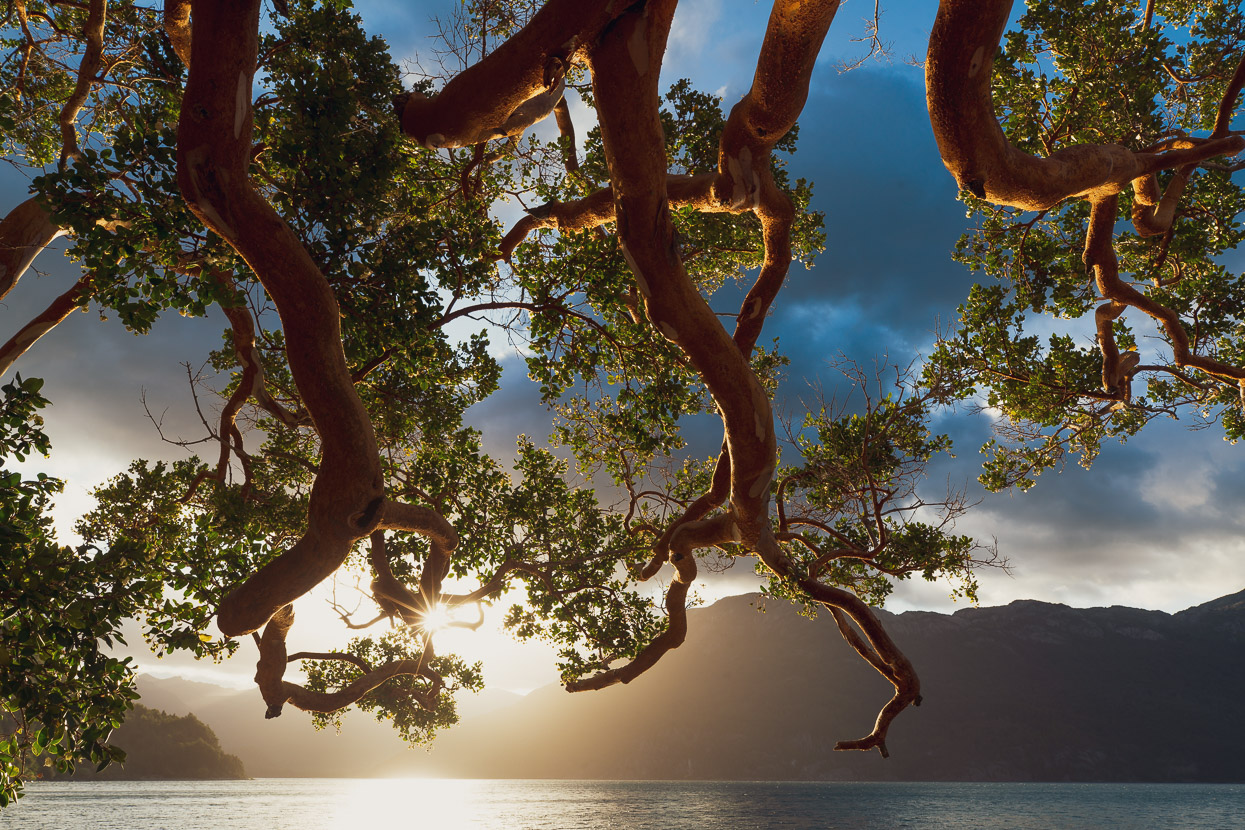
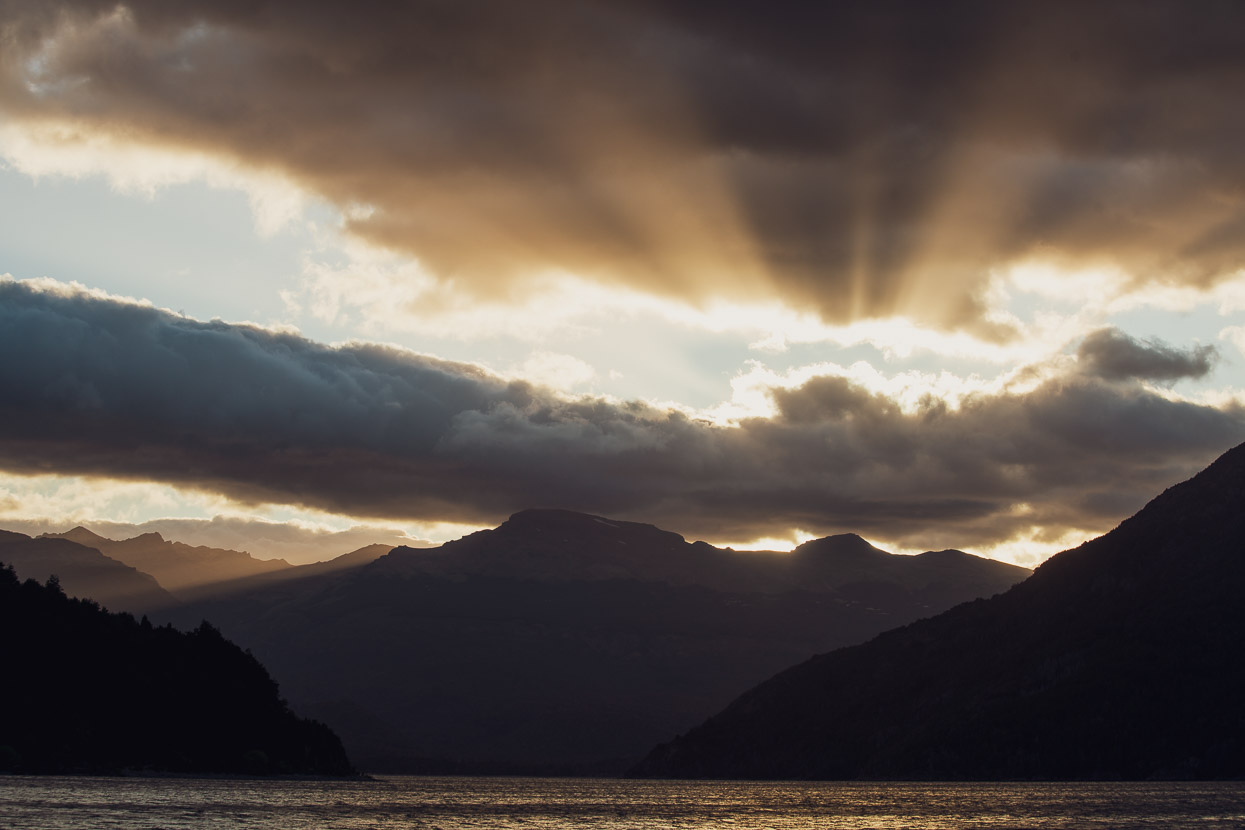
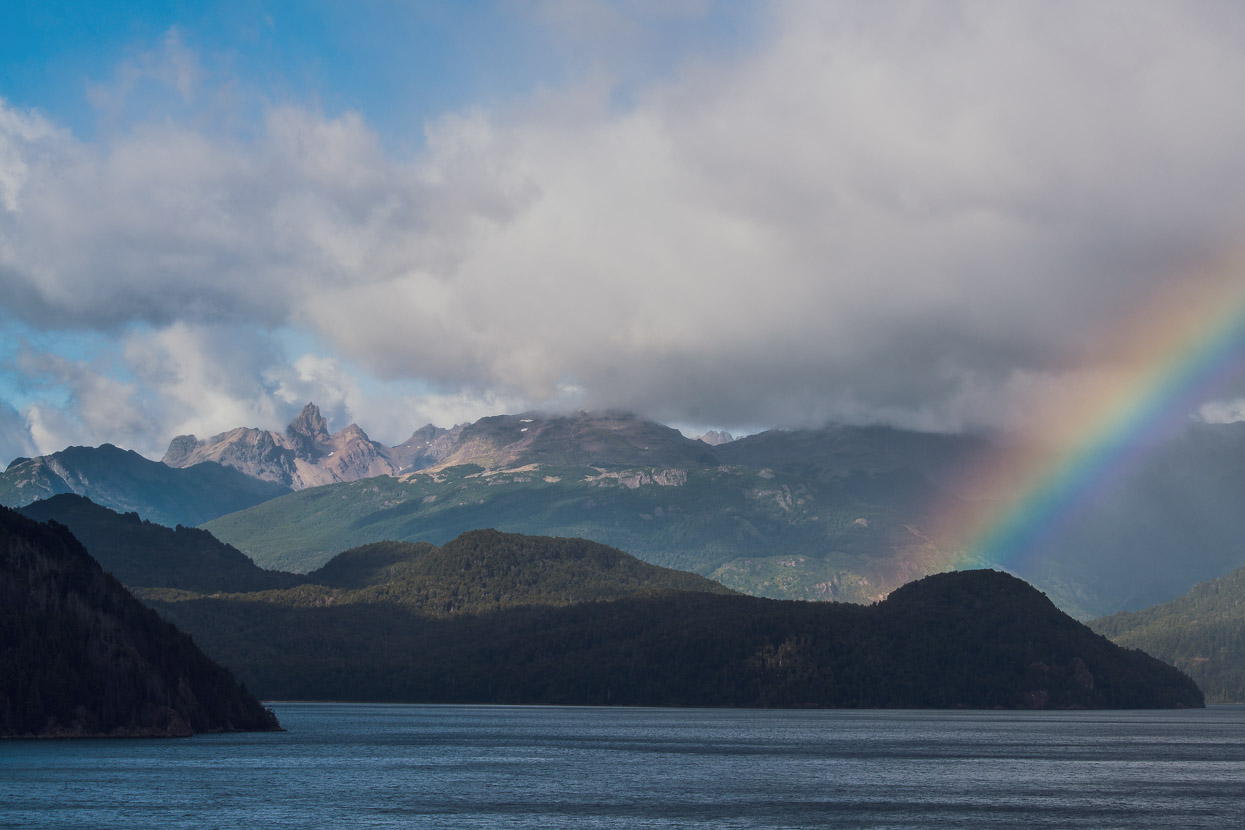
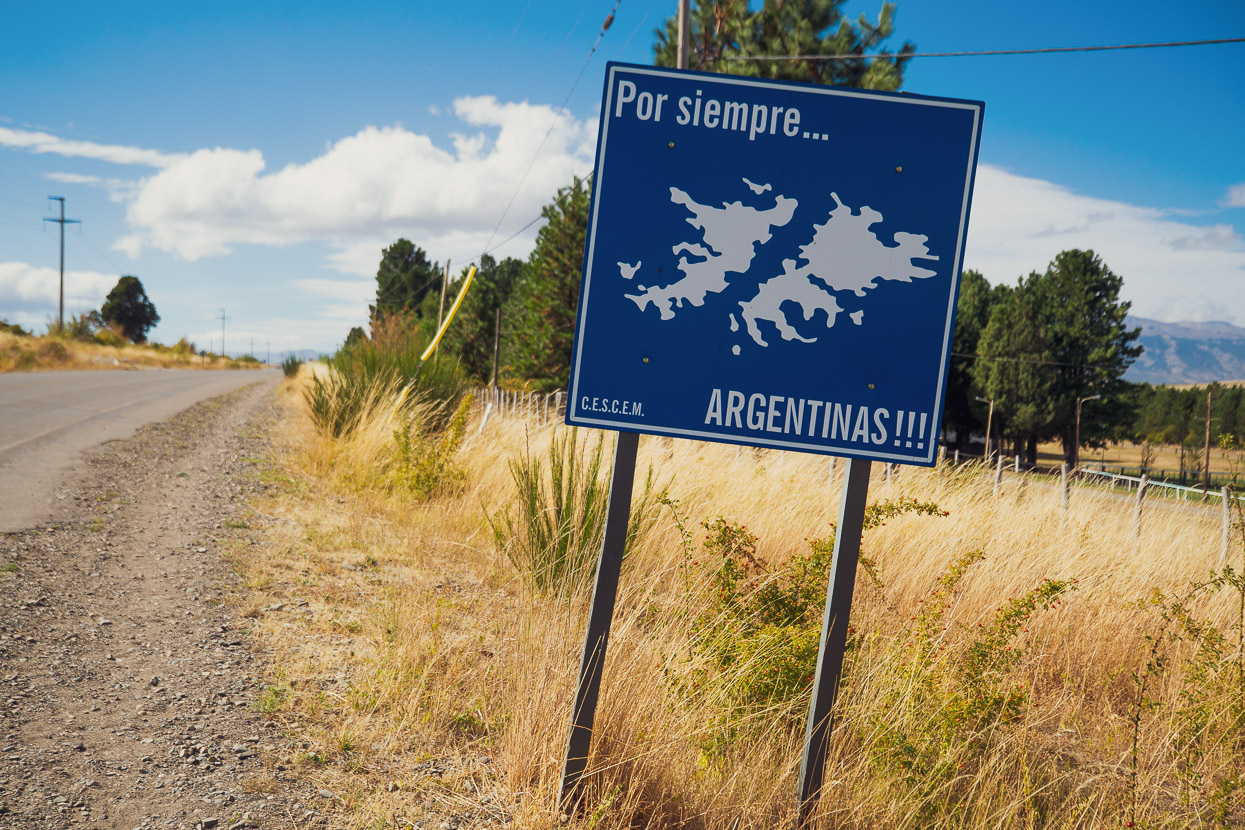
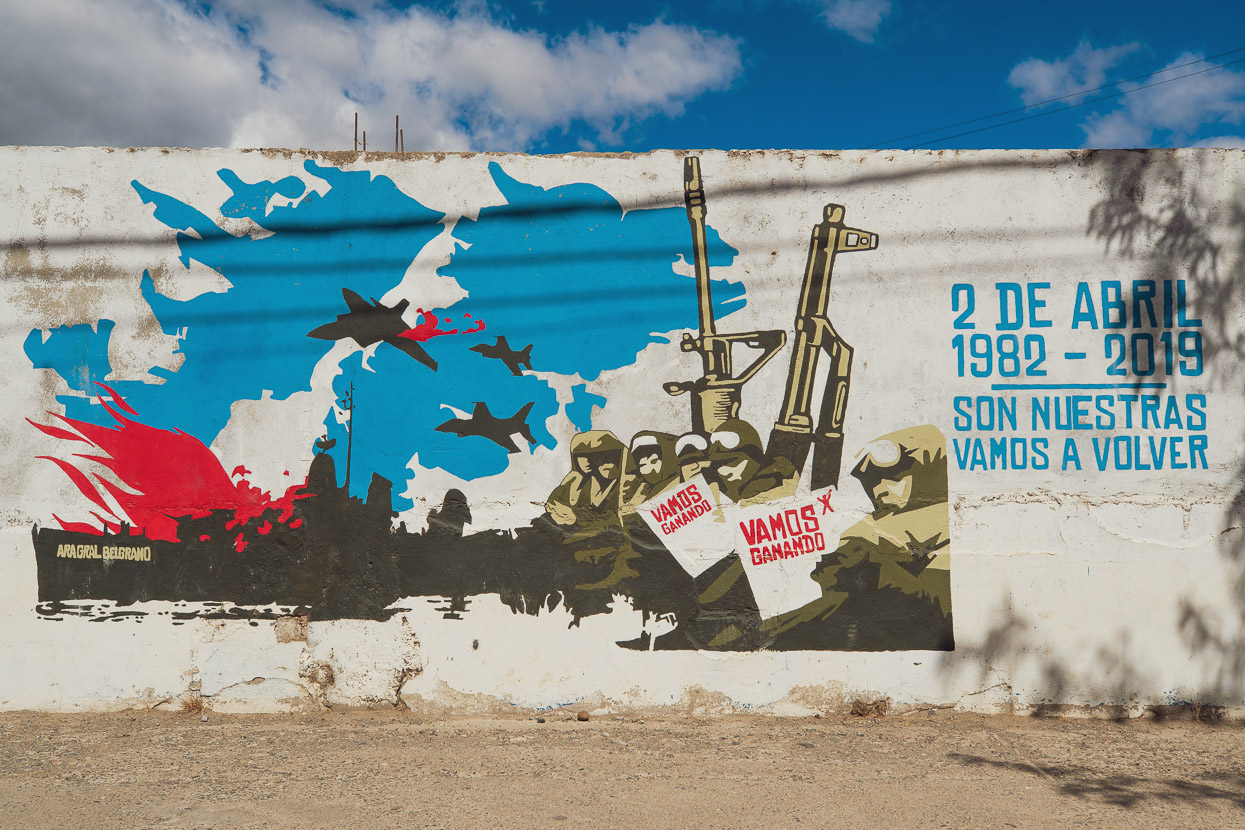
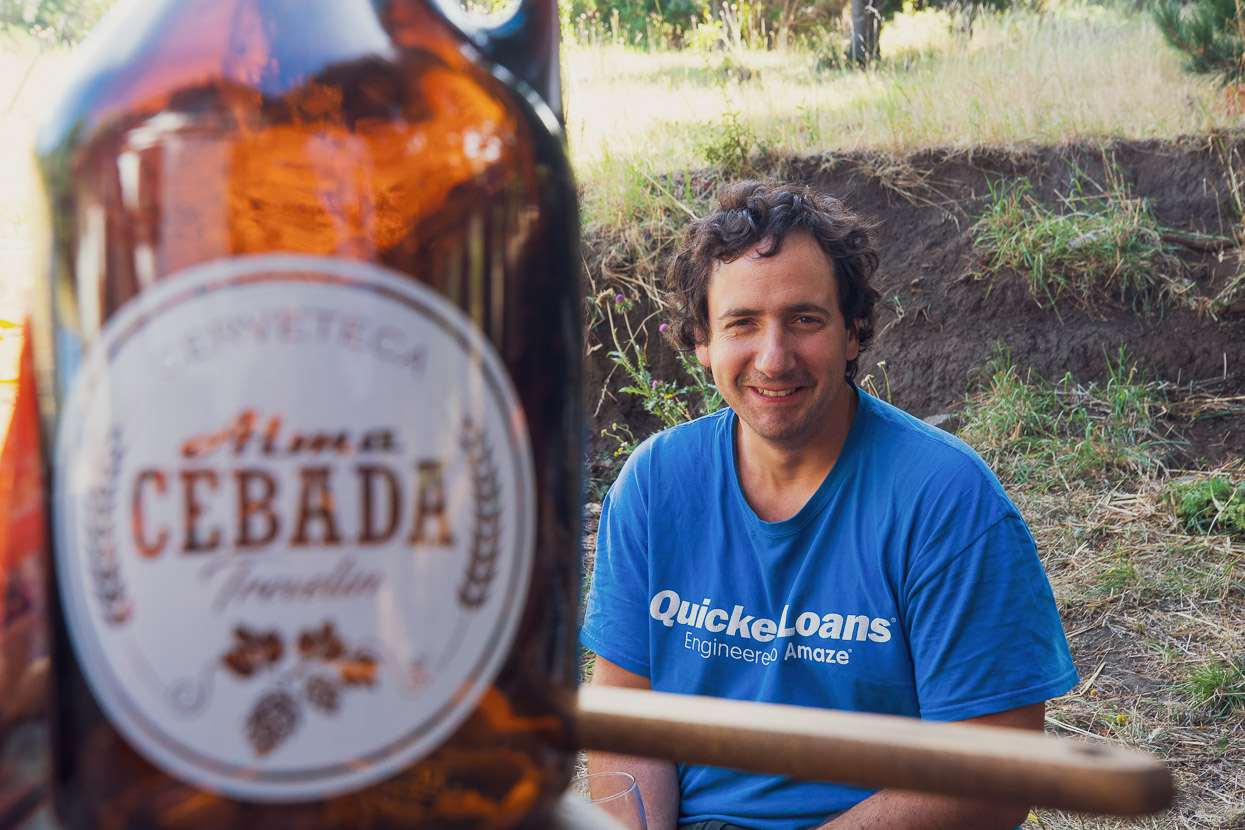
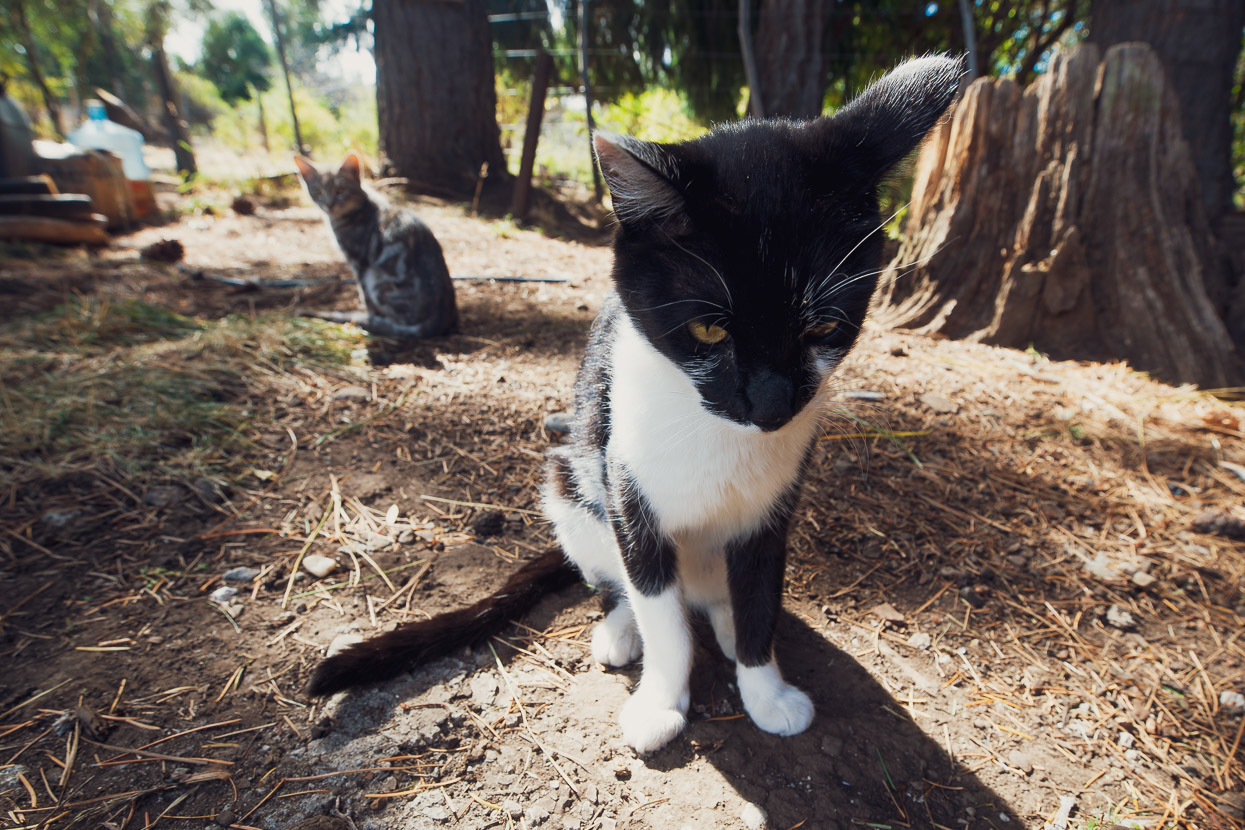
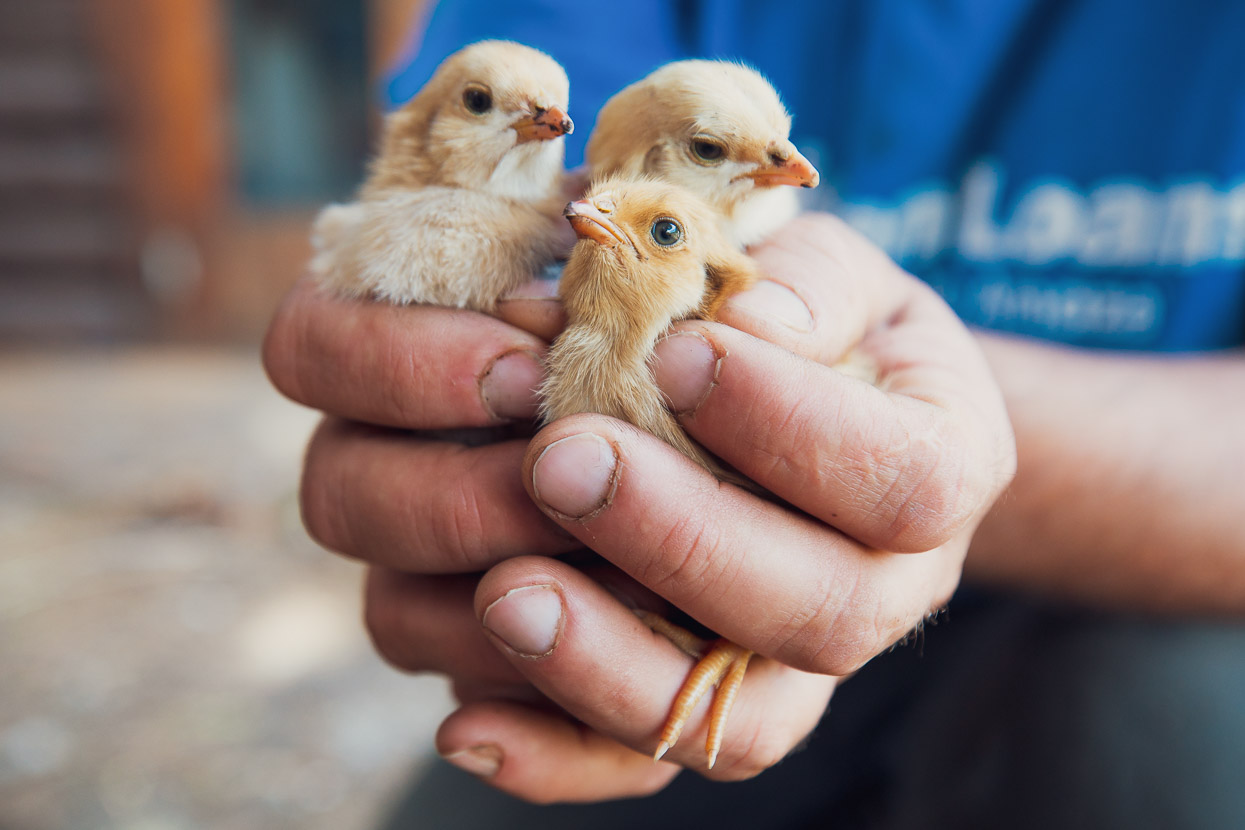
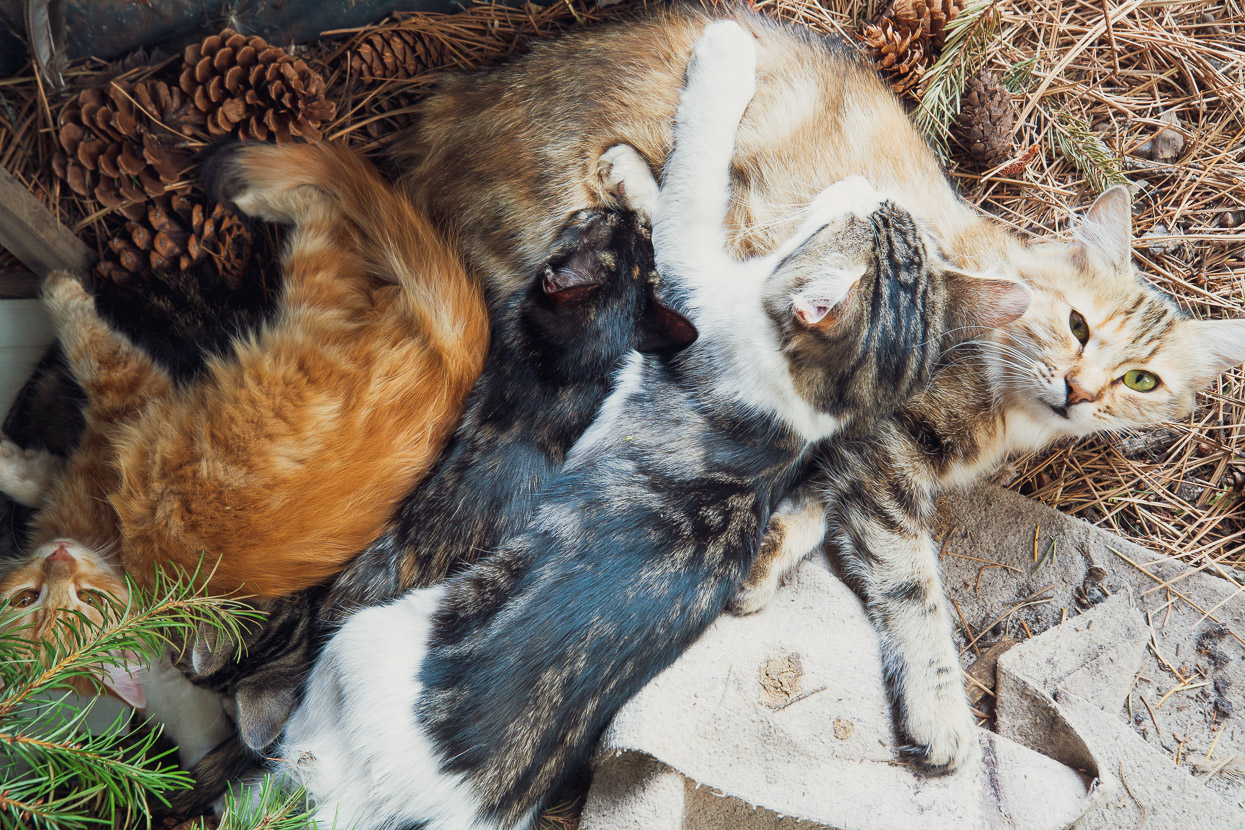
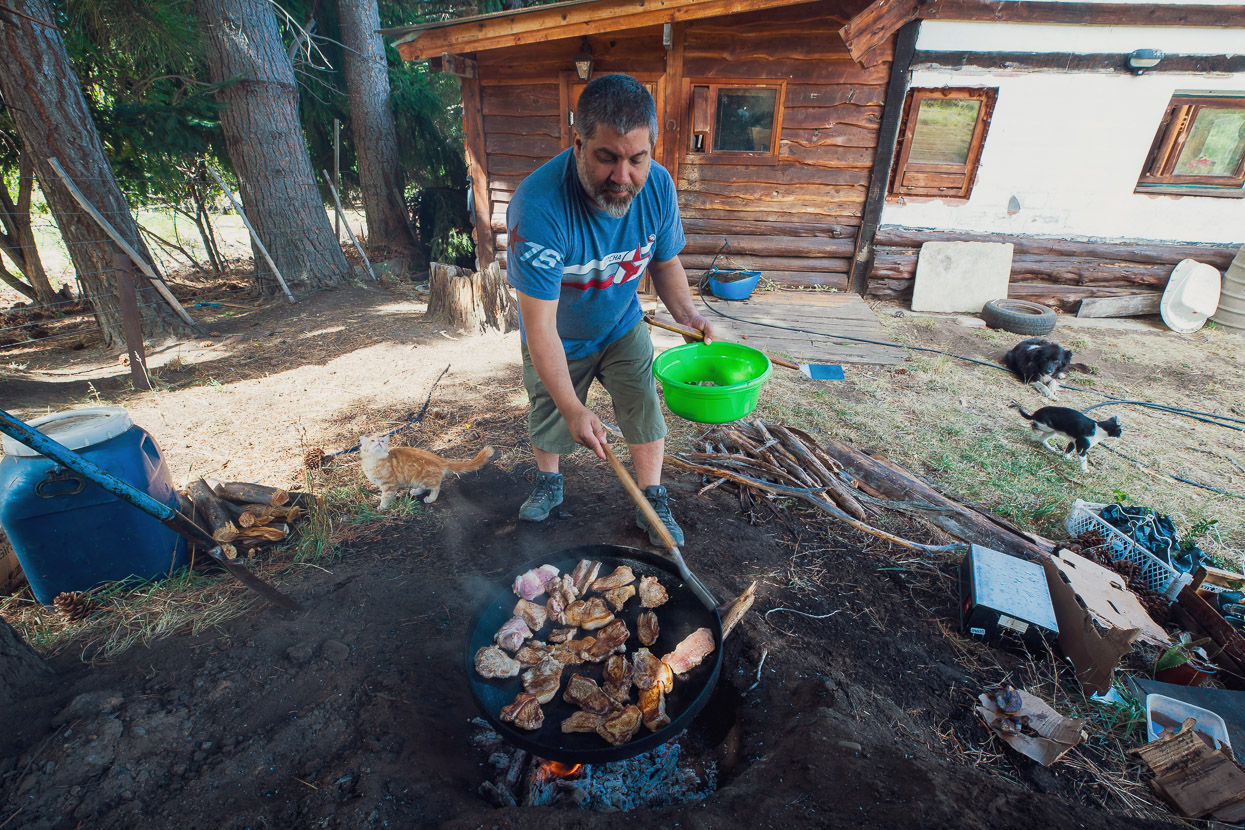
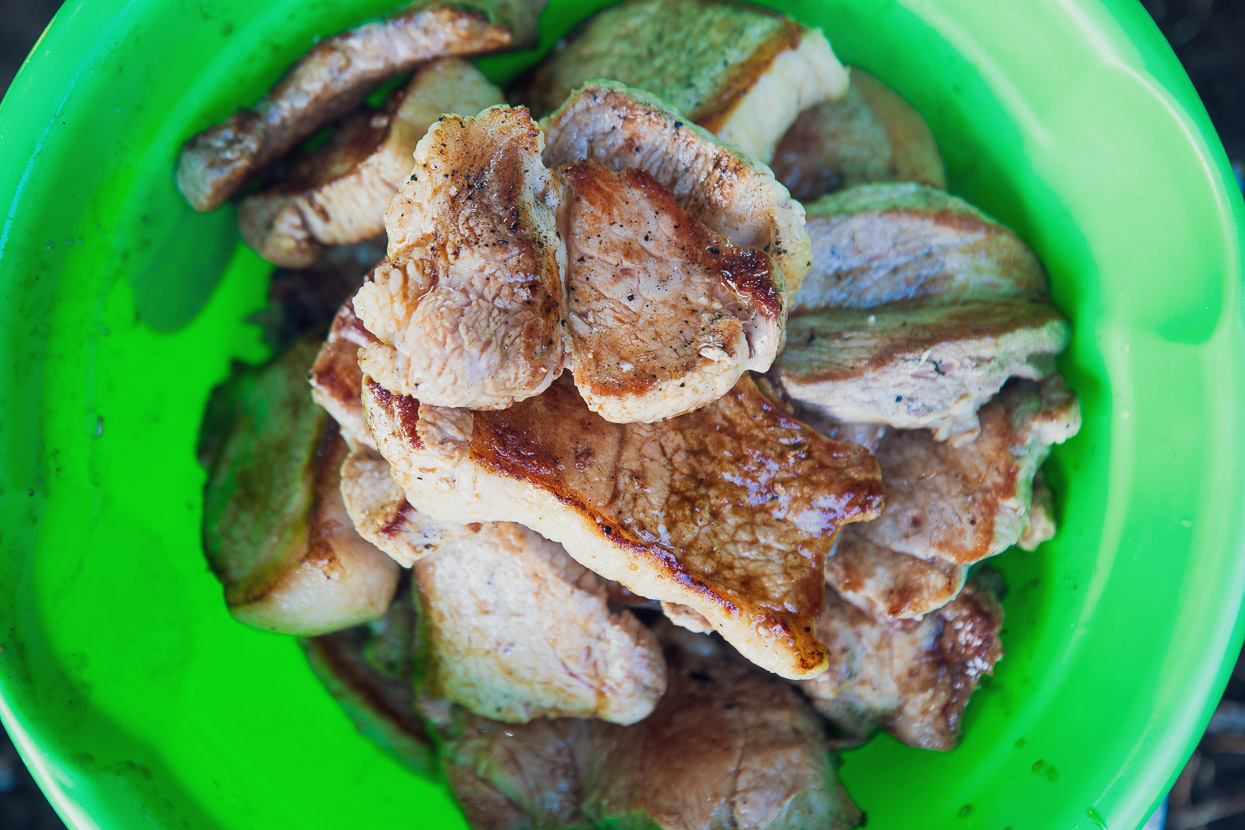
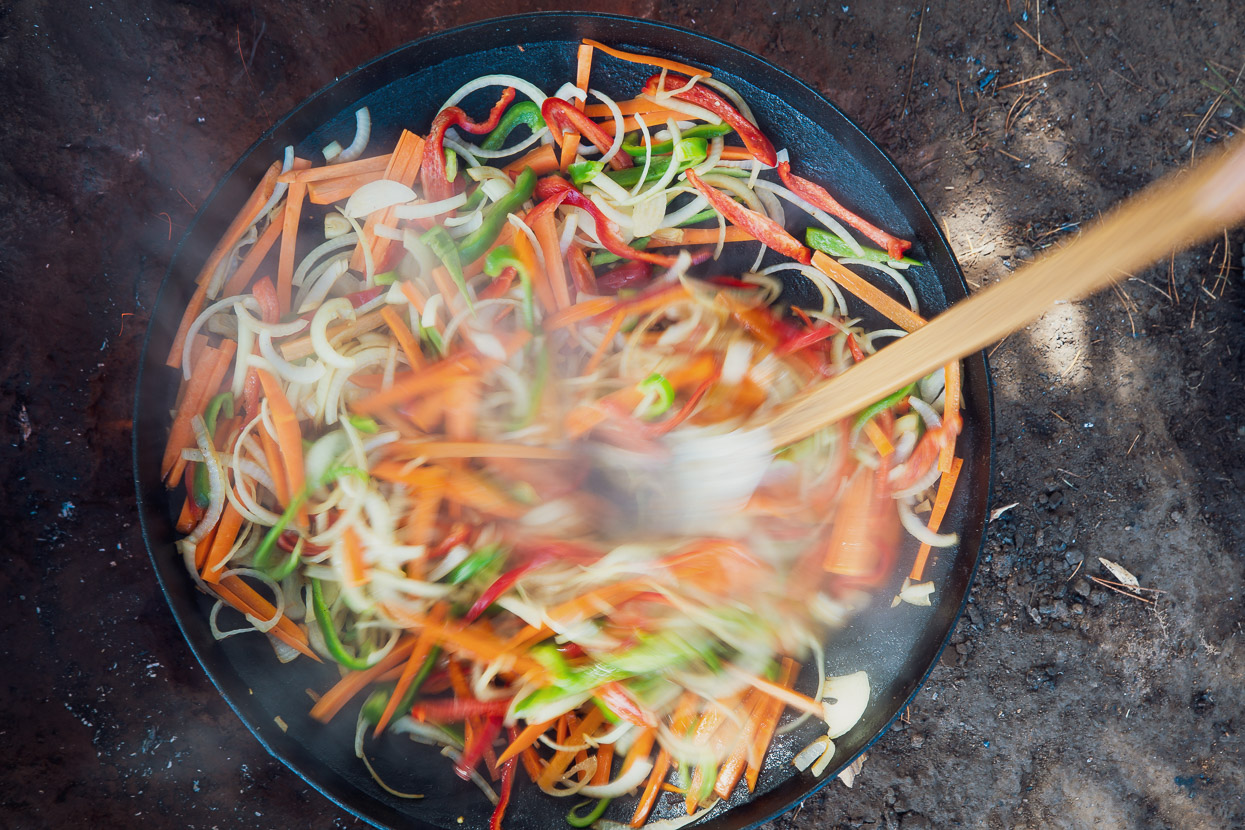
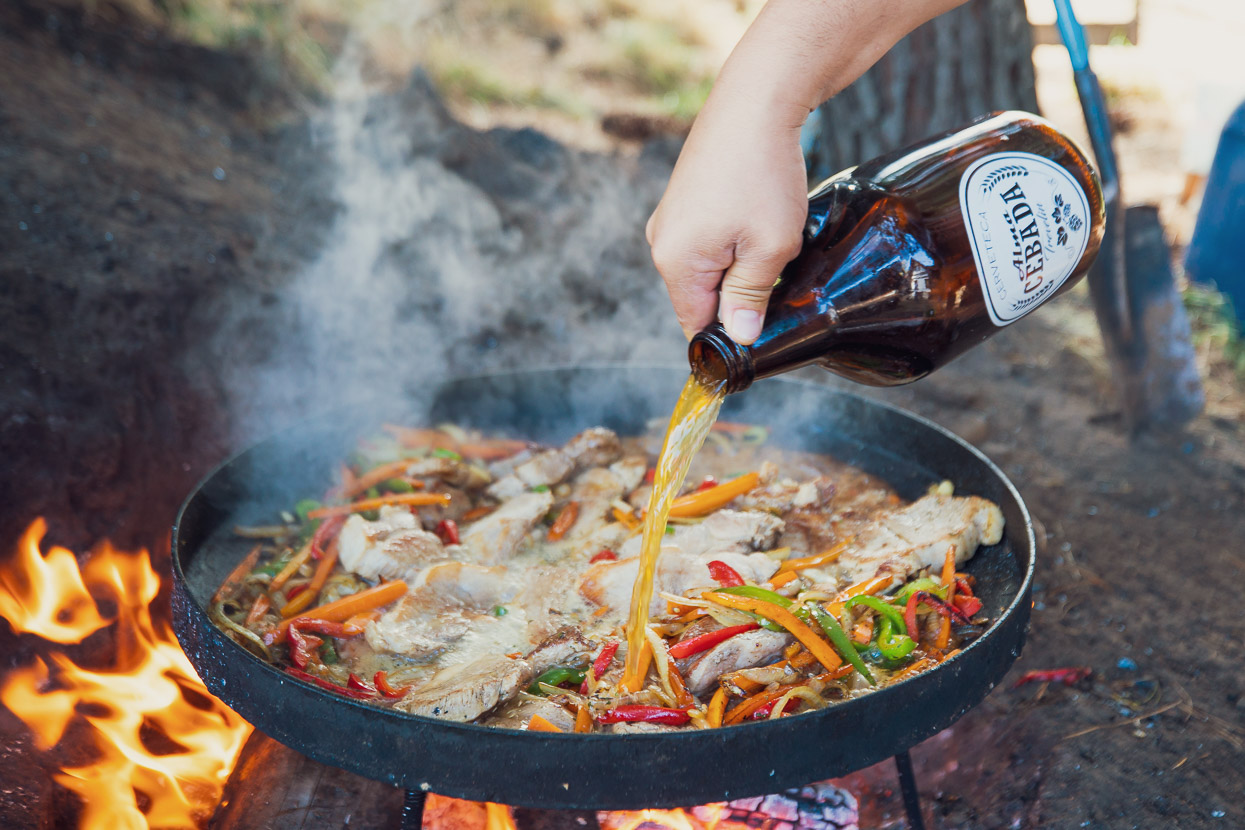
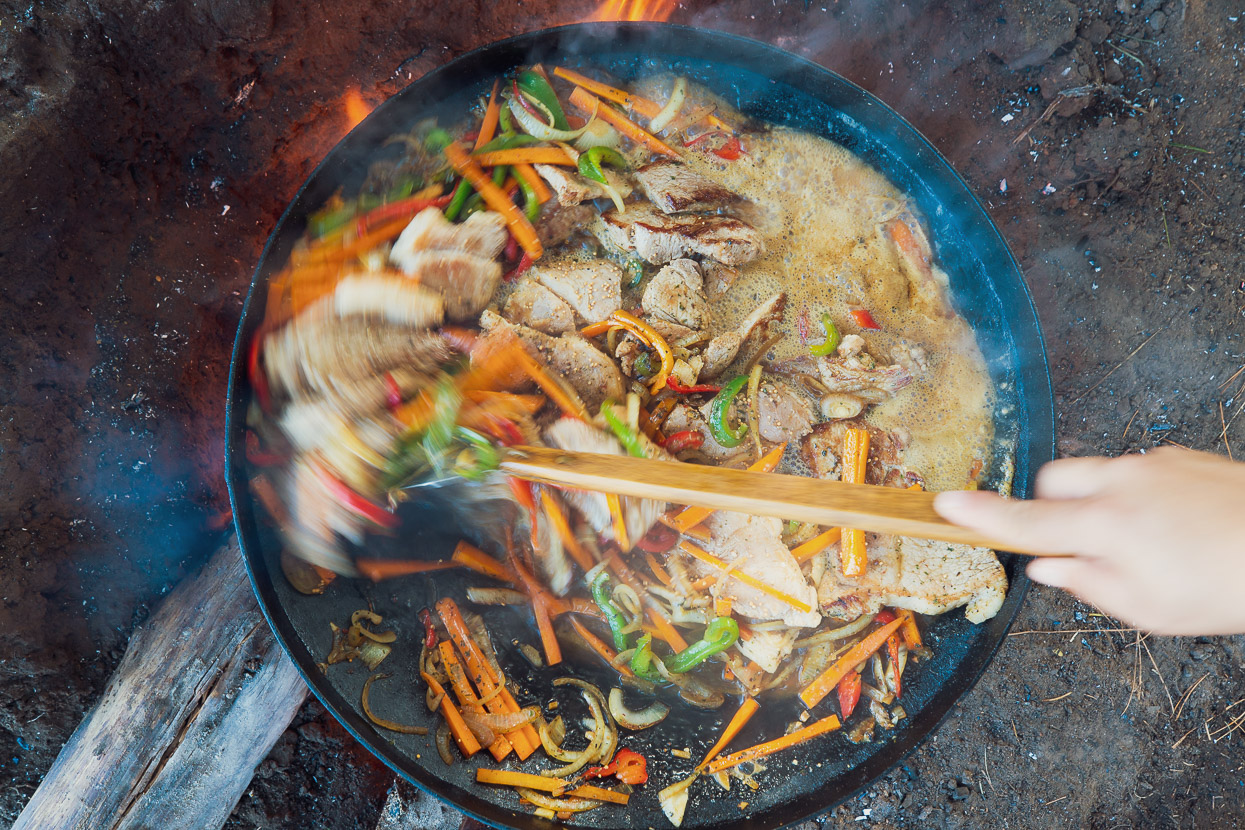
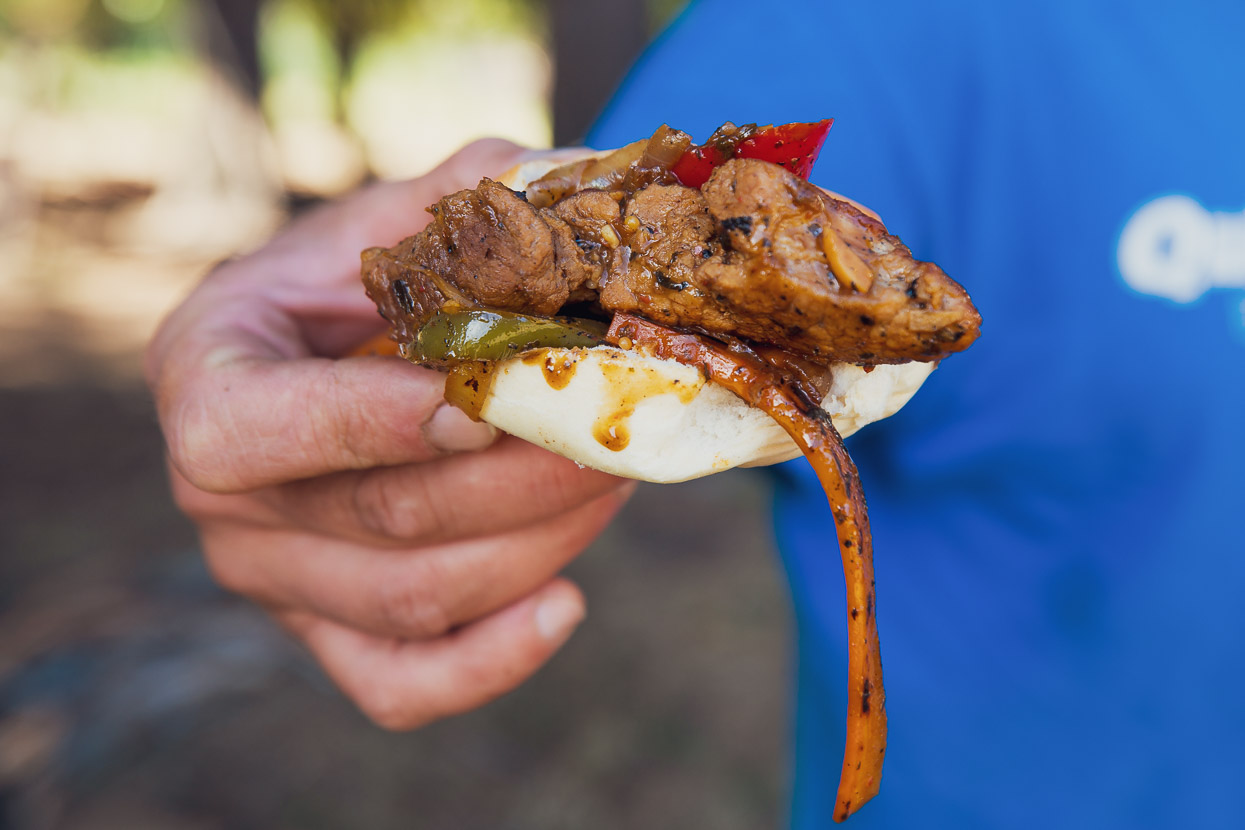
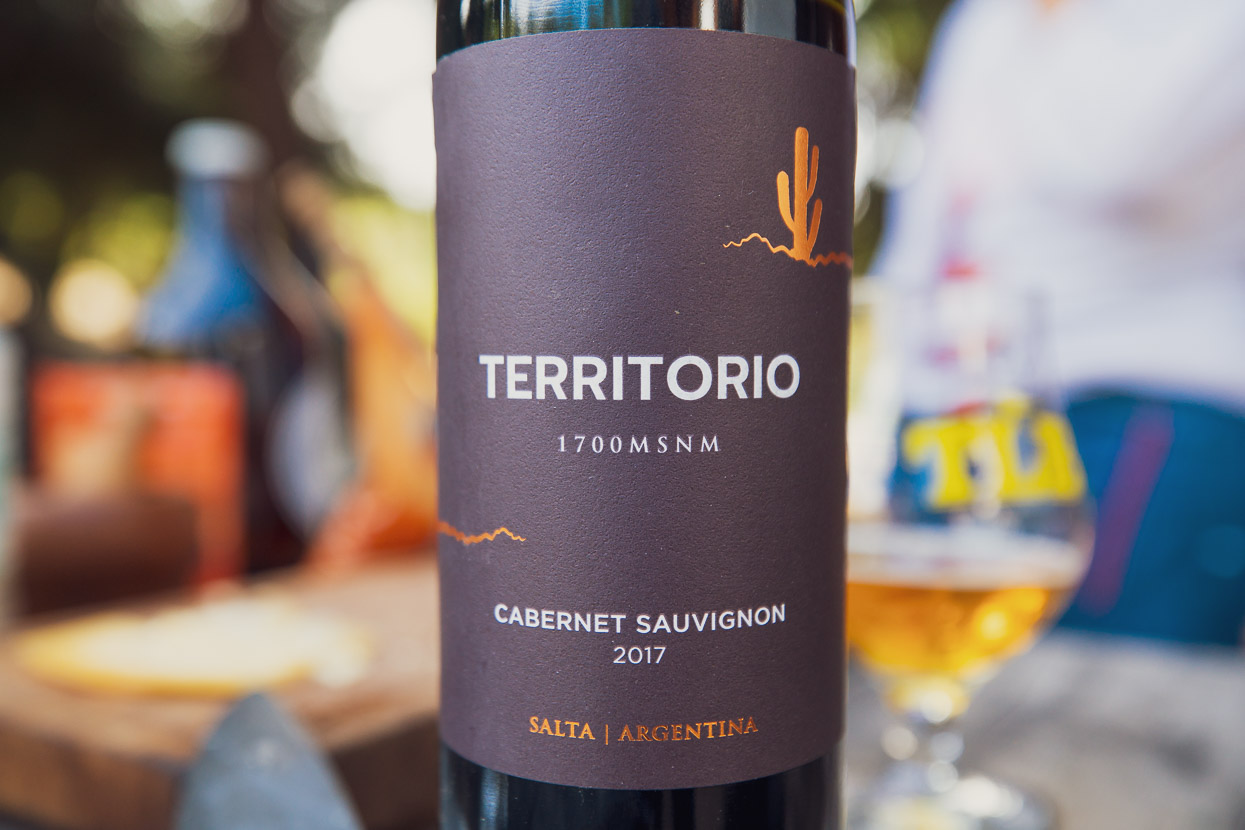
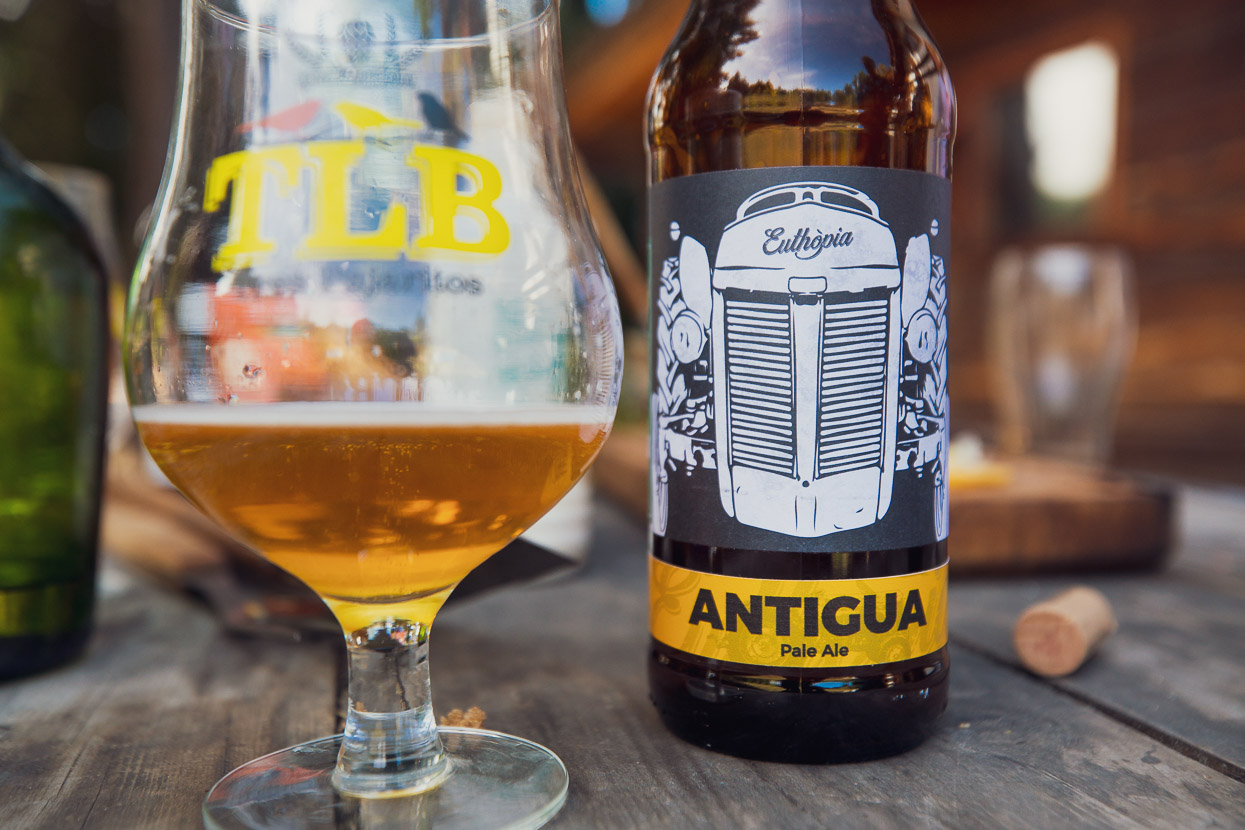




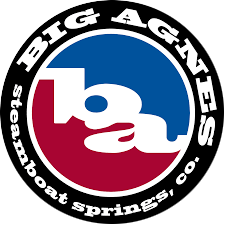
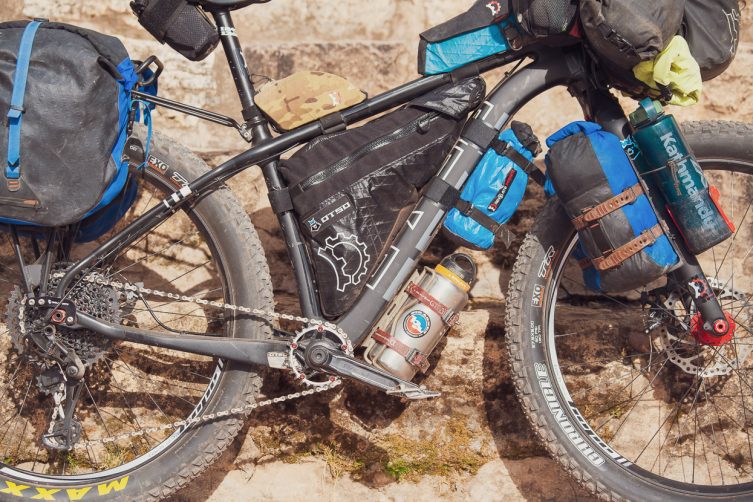
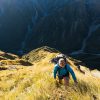
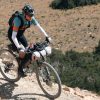
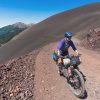

Hello there,
I am so glad to hear you are safely home in NZ. Being in isolation must feel very strange after so freely exploring the Americas for the last almost 4 years. I was introduced to your blog by Dave and Nancy “leave without pay adventures in mid life” the Australian couple who also cycled from Alaska to Argentina in 2017 to 2019. Thank you for the excellent dialogue to accompany your stunning photography. I have shared your web site information with a whole host of friends, most recently this evening. I so appreciate being able to “experience” places and people that I could never have imagined, and all in the comfort of my home. Blessings…..
Hazel Phillips
Thanks Hazel! Indeed it does feel strange, but at the same time we could be in worse circumstances (and we know other people are), so we appreciate where we are right now. I’m glad to hear you have enjoyed the blog, and thanks for letting us know! Hopefully in a few months time (and not years!) we can get back to completing our journey.
Cheers, Mark + Hana.
Mark & Hana, we are also glad to see you are back in a safer place, even thou the entire world seems vulnerable.
It has been a long journey and little did I expect to be following you over the last 3 to 4 years, after meeting you and Hana at your campsite at Boya Lake in BC CA. You have made your adventures a part of our life and we look forward to your follow-up of this delayed exploration, feats of which are comparable to many famous explorers.
I am thinking that someday, being the writer you are, that several books will be written. The psychology of making such a trip and the difficulties of mental fatigue and physical challenges along with the trials and encounters you and Hana have no doubt had along the many paths.
Bless the two of you,
vic & joy
Thanks Vic and Joy. Yes we remember well the chat we had with you at Boya Lake and your absolute enthusiasm for both our ride and the finer points of navigation and mapping! It’s been great to have you along for the ‘ride’ and we have appreciated your input. I hope in time we can get back and complete it. I trust you are both well and keeping safe.
Regards
Mark & Hana.